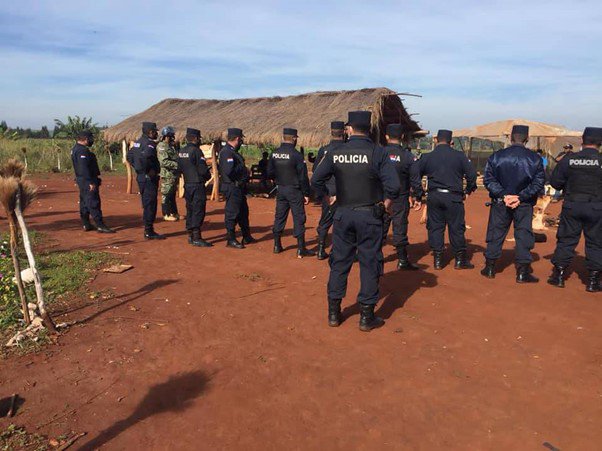
Police arrive en masse to enforce an illegal eviction of an Indigenous community in Paraguay. Ka'a Poty community member via Al Jazeera
A wave of violent conflict is sweeping the Paraguayan
countryside, driven by demand for land to grow a single crop: soy.
Nestled between Brazil and Argentina in the heart of South
America, Paraguay is the world’s fourth largest exporter of soy. But the social
and environmental impacts of its soy industry have received little scrutiny
compared to its giant neighbours.
This is partly because soy production in Paraguay generates
less deforestation. Soy is grown principally in the country’s fertile east,
which had already lost the bulk of its forest by the dawn of the twenty-first
century.
As our investigation reveals, however, this fact has
emboldened western corporations to turn a blind eye to widespread human rights
abuses. In Paraguay’s soybean heartlands, rural communities are enduring illegal
evictions, armed attacks, poisoning by illegal fumigations, and criminalisation
– all to secure land to grow soy for export.
In 2022, Global Witness travelled to eastern Paraguay to
investigate this conflict.
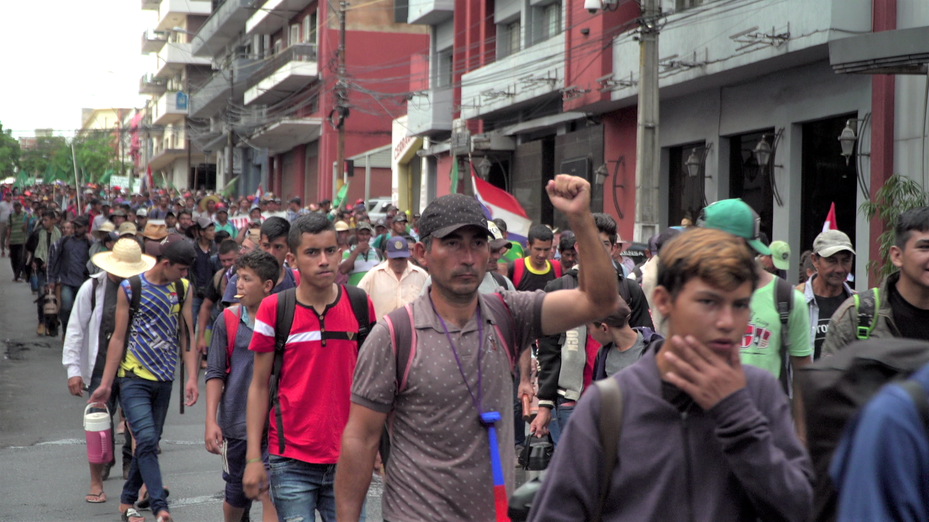
Campesino and Indigenous peoples at the 'XXVII Gran Marcha Campesina' (27th Big Campesino March) demonstrate against land injustice and impunity, Asuncion, 25 March 2022. Global Witness
We visited a range of Indigenous and campesino communities across
four of Paraguay’s main soy-growing departments, gathering evidence of the
abuses and identifying the soy producers responsible.
We saw how abandonment by the Paraguayan state is leaving
communities defenceless in the face of the aggressive expansion of large-scale
agribusiness. We witnessed how communities of land and environmental defenders
are engaging in resistance. And we documented how complaints of human rights
violations are linked to some of the world’s biggest companies.
90%
of Paraguay’s soy harvest is exported. These exports are handled by
massive multinational commodity traders, which control the global trade
in grains and
oilseeds. Around 40% of Paraguay’s soy exports are handled by just two
of these
firms: Cargill and ADM. Together, these US giants dominate the
Paraguayan
economy, extracting huge revenue from Paraguayan land.

For each of the community conflicts, we identified the traders
buying from the soy producers causing human rights abuses. In every instance,
we found links to either ADM or Cargill. In two cases, we also uncovered ties
to a third US giant, named Bunge.
We then traced the onward journey of this soy. 80% of the global
soy harvest is used in animal feed. Drawing on shipping data and interviews
with industry insiders, we mapped the opaque supply chains connecting rights violations
in Paraguay to two of Europe’s biggest meat companies.
One route led us to 2 Sisters, the UK’s biggest chicken company
and a supplier of corporate giants including Tesco, Marks and Spencer, KFC and
Nando’s.
The second led us to Danish Crown, Europe’s largest meat
processing company, which supplies a rollcall of the continent’s biggest
retailers, including Sainsbury’s, Carrefour, Intermarché, Lidl, and Netto.
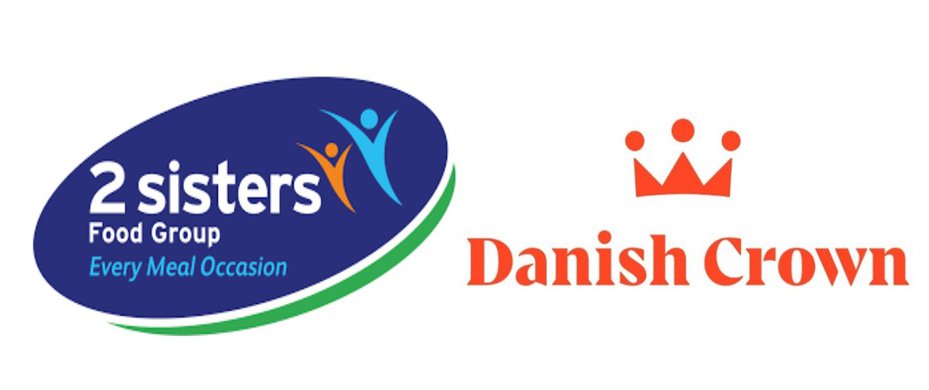
The traders’ historical and ongoing
purchases of soy from Paraguayan farmers who have violated basic human rights
represent egregious failings under international UN and OECD standards.
Moreover, these failings are all too readily inherited by the
European corporates our investigation encountered – even being baked into
voluntary sustainability commitments they have adopted to ensure soy in their
value chains is ‘responsibly produced’ by 2025.
Our research reveals how the companies involved have adopted what
we consider to be an accounting trick known as ‘mass balance certification’.
This system – ostensibly intended to help clean up Europe’s soy imports – mixes
soy from farms like those we visited in Paraguay into nominally certified
consignments, resulting in the tainting of most of Europe’s Paraguayan soy
imports.
From the traders themselves, through the animal feed companies
they supply, and onto the mega farms, meat processors, and big brand retailers
named in this report, the acceptance and promotion of this nominally
‘sustainable’ soy constitutes negligence dressed as sustainability, and locks
human rights risk into these supply chains.
As a result of these failings, our investigation shows millions
of European consumers of 2 Sisters’ and Danish Crown’s products are also likely
purchasing products made at the expense of the fundamental human rights of
Indigenous and campesino communities in Paraguay.
We
sent our findings to all the companies concerned. Nearly all of those who
responded said they would investigate what they regarded to be violations of
their policies on human rights and land rights. All of the responses received
are summarised in a table
below and some are included in this
report.
European governments have long
committed to end corporate complicity in human rights and environmental harms.
The European Union (EU) has recently
proposed two laws mandating that companies eliminate human rights,
environmental and climate abuses from their value chains.
The proposed Deforestation Regulation,
and the Corporate Sustainability Due Diligence Directive (CSDDD) will both
require companies to carry out checks on their supply chains – known as due
diligence – to identify their existing and potential impacts, prevent their
activities from contributing to further harms, and address those that have
already occurred.
This process has the potential to help
eradicate abuses from corporate value chains, particularly for high-risk
agricultural commodities such as soy.
Yet these proposals are still under negotiation, and it is critical to ensure they provide sufficient accountability.
Industry
lobbying by many of the traders and animal feed companies exposed in
this investigation has advocated for the new rules on deforestation to
accept leaky certification systems that would ensure continued imports
of soy tarred by land grabbing and human rights harms. Although the
European Parliament is working to resist this, the proposed EU
Deforestation Regulation will only apply to human rights cases linked to
recent deforestation, and cases like those in this report will not be
covered.
The proposed draft EU directive on human rights due
diligence is also full of loopholes. Companies like ADM and Cargill may
not be required to do due diligence on all the farmers they source from,
such as those in Paraguay our investigation exposes.
The draft directive also formalises a role for exactly the types of ‘industry initiatives’ and ‘third-party verifications’ our investigation reveals are a conduit for structural human rights risks, and can prevent companies from being held legally accountable.
The draft EU
directive on human rights due diligence must support and in no way replace or
undermine existing rights under the ILO Convention 169 and UN Declaration on the
Rights of Indigenous Peoples (UNDRIP), including rights of Indigenous
Peoples not to be removed from their lands or territories, their right to
redress or compensation for land rights violations, and their right to exercise
free and prior informed consent (FPIC).
The UK
government has also been urged to introduce similar human rights and
environmental due diligence legislation for businesses, but has yet to propose
concrete plans to do so. Separately, some of the cases in this report could
potentially be addressed under Schedule 17 of the Environment Act 2021. Yet
Schedule 17 requires further regulations to be made by the Secretary of
State before it can bring
accountability to companies such as those in this report. The
timetable for the passage of those regulations remains uncertain.
Our investigation highlights why European lawmakers must ensure they strengthen proposed legislation to prioritise people and planet over accounting tricks, opacity, and impunity for the companies dominating Europe’s industrial food system.
They must impose strong, enforceable rules holding companies
accountable for the elimination of human rights and environmental harms from
their supply chains and the provision of remedy where harms occur.
The Indigenous and marginalised farming communities impacted
by human rights violations in rural Paraguay are counting on it.
Problems in Paraguay
- Soy
production in Paraguay is fuelling a wave of conflict and dispossession,
impacting both the country’s Indigenous peoples and its small-scale farming or
campesino communities
- In
2022, Global Witness visited a range of the communities affected, travelling
through four of Paraguay’s major soy-producing departments: Alto Paraná;
Candindeyú; San Pedro; and Caaguazú
- On
this journey, we documented a raft of serious human rights abuses: forced
evictions; armed attacks; chemical poisoning; threats; intimidation, and the
criminalisation of communities pursuing legitimate land claims
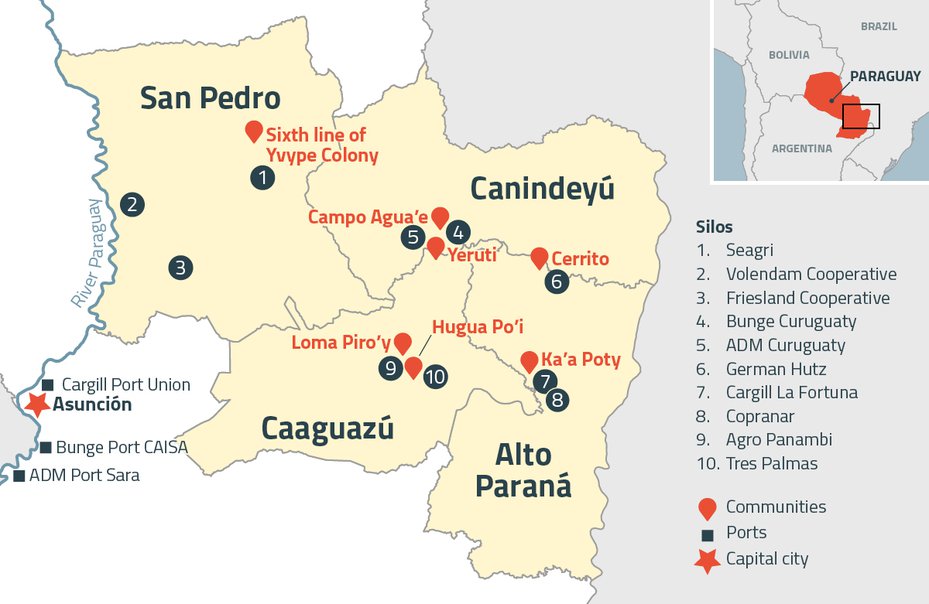
Locations in Eastern Paraguay of Indigenous and campesino communities impacted by human rights and land rights harms linked to soy production, and the facilities of companies involved in commercialising the soy produced.
The Cerrito community
The Indigenous community of Cerrito is situated among the
endless soy fields that blanket Alto Paraná, Paraguay’s biggest soy-producing
region. Its residents – members of the Ava Guarani people native to eastern
Paraguay – are battling to return to land which once belonged to their
ancestors, but today is dominated by industrial agribusiness.
“When I was 12 or 13, this was all forest, with many
fruits,” recalls Arnalda Martinez, a woman in her sixties who grew up, like her
parents and grandparents, in the area claimed by the Cerrito community. “We
hunted in the forest, we fished in the forest, we extracted honey and medicinal
plants. And now what has happened? The forest is gone. There’s only soy,
nothing else is left.”
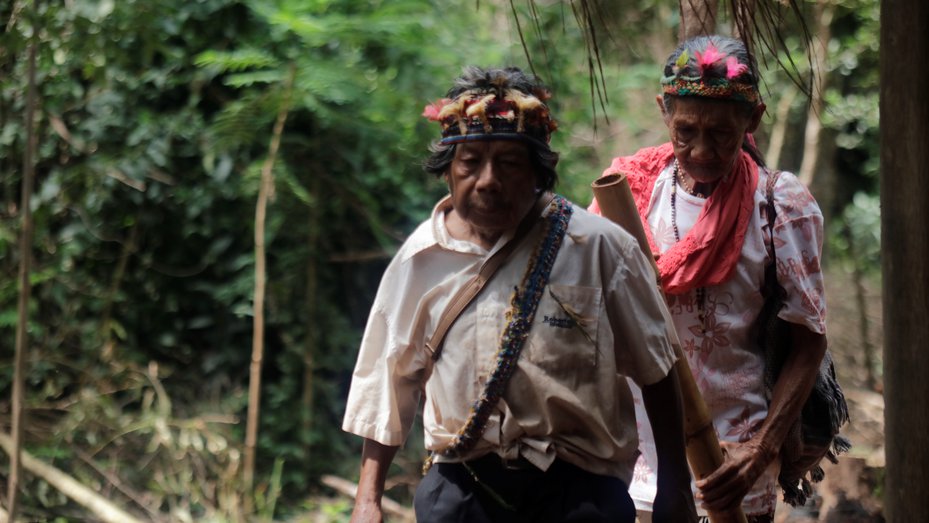
ELDERS OF THE AVA GUARANI COMMUNITY OF CERRITO PREPARE FOR A CEREMONY, 29 MARCH 2022. GLOBAL WITNESS
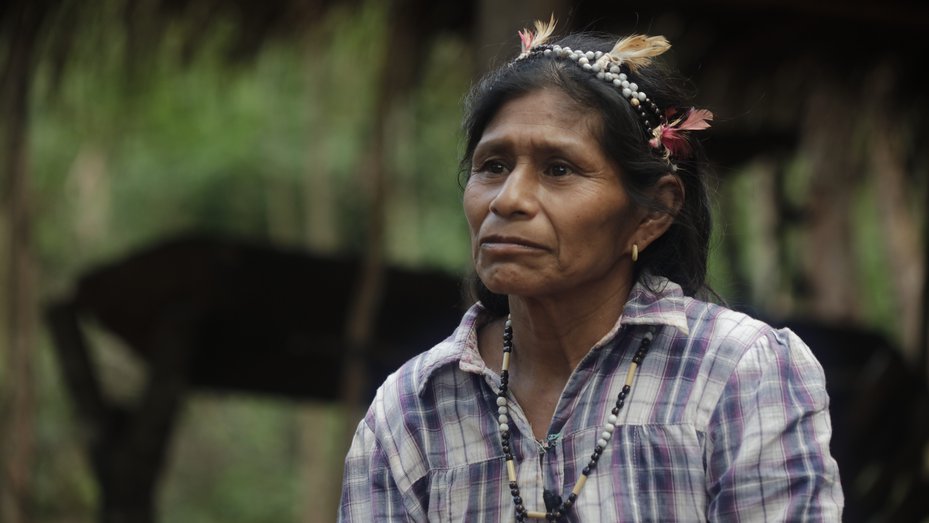
ARNALDA MARTÍNEZ, MEMBER OF THE CERRITO INDIGENOUS COMMUNITY, SPEAKING TO GLOBAL WITNESS, 29 MARCH 2022. GLOBAL WITNESS
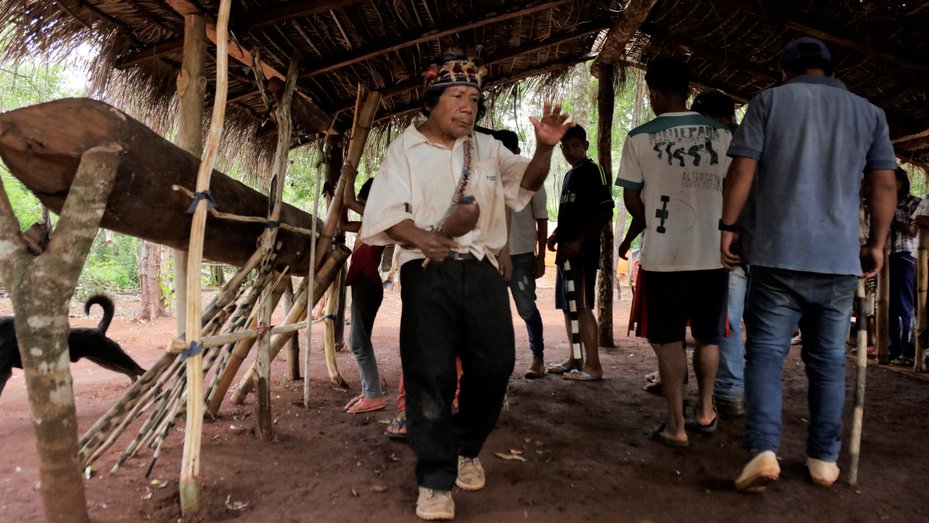
A CEREMONIAL DANCE IN THE JEROKY (TEMPLE) OF THE CERRITO COMMUNITY, 29 MARCH 2022. GLOBAL WITNESS
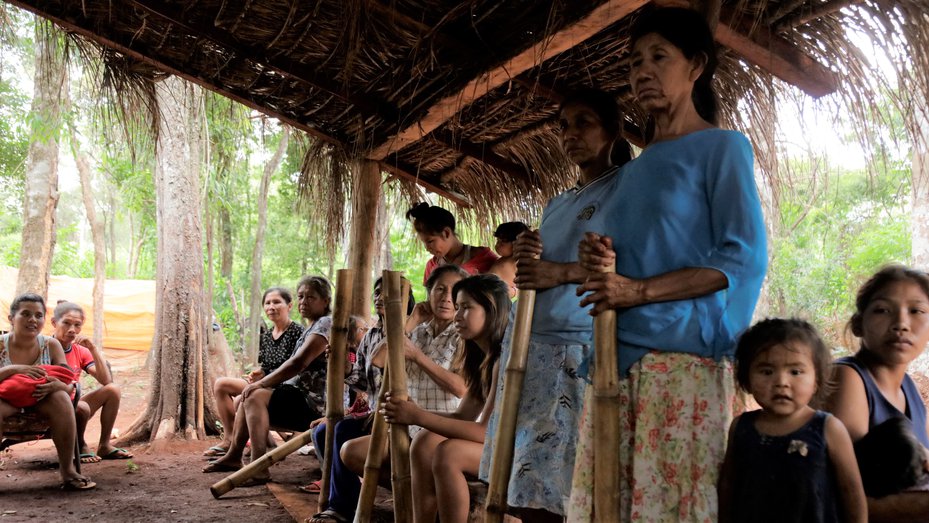
WOMEN OF THE CERRITO COMMUNITY TAKING PART IN A CEREMONIAL DANCE, 29 MARCH 2022. GLOBAL WITNESS
This transformation began one morning in 1955, when a young army captain was handed a historic mission: to open a route through the dense
forest that cloaked the south-east of Paraguay.
The project launched a wave of colonisation nicknamed “the march to the east”,
which saw the area, inhabited by a rich patchwork of Indigenous peoples, pass
into the hands of private landowners.
“Indigenous people found themselves cornered in the most
remote areas of large properties,” explains anthropologist Gloria Scappini.
“They opted first for flight and refuge, and then for migration.”
Thousands died, and Alfredo Stroessner, Paraguay’s brutal Cold War dictator,
was accused of genocide.
In 1992, following Stroessner’s ouster, Paraguay adopted a
progressive new constitution. Article 64 affords Indigenous people wide-ranging
new rights, prohibiting “the removal of Indigenous people from their habitat
without their express consent.”
It’s on the back of such rights that Indigenous communities such as Cerrito are
fighting to return to their former territory.
“We won’t let anyone take away our culture,” says
Martinez, sitting in front of Cerrito’s wood-walled Jeroky or temple. “So we organised among
ourselves to return to where they had expelled us. We returned to recover the
forest for our children.”
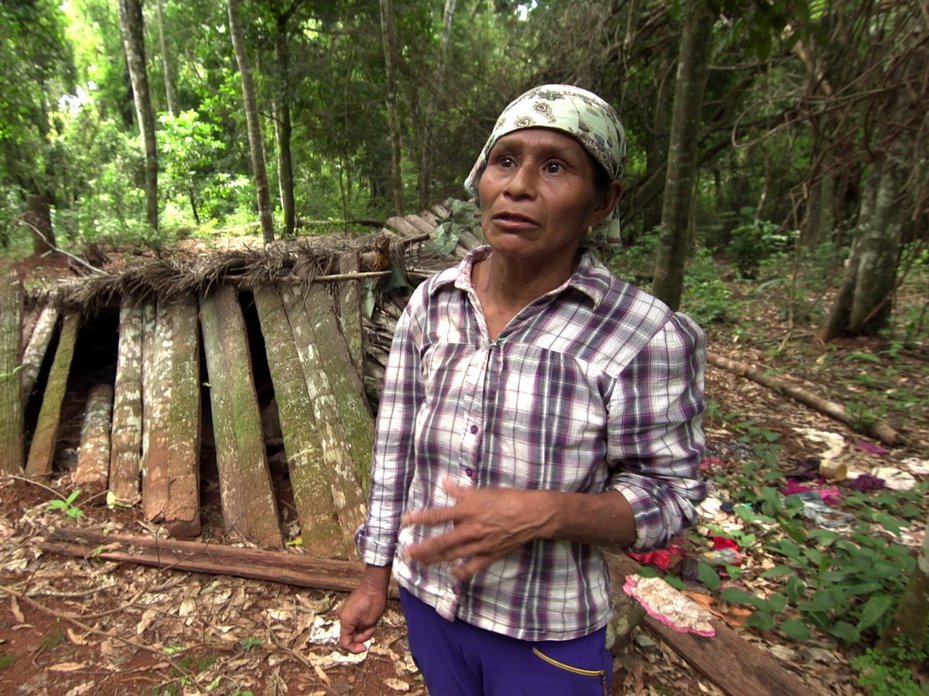
ARNALDA MARTÍNEZ IN FRONT OF THE HOME OF HER DAUGHTER, WHICH WAS DESTROYED DURING AN EVICTION. COMMUNITY MEMBERS WERE NOT GIVEN TIME TO COLLECT THEIR POSSESSIONS OR CLOTHES. GLOBAL WITNESS
The Cerrito community returned to land now held by a
powerful local soy producer, German Hutz, who possesses
titles to tens of thousands of hectares across the
departments of Alto Paraná and neighbouring Itapua. In 2020 Hutz was involved in an injunction
to retain his possession of land claimed by the community.
Shortly afterwards, in March 2021, court officials cited this case in
requesting police assistance to evict the Cerrito community.
Police have since evicted the community three times: firing
guns and teargas canisters to drive out the residents, and then incinerating their homes and temple,
destroying their crops, and killing their animals.
Following the third eviction, in May 2022, community members were left homeless
in Paraguay’s cold winter, some of the children without clothes, as they were
given no time to gather possessions.
Paraguay’s state Indigenous Institute (INDI) condemned
the evictions, highlighting a range of institutions, including themselves, who should have been consulted before any measures were taken. Senators in
the Paraguayan Congress questioned the proceedings that authorised the evictions. Rights
groups point to a raft of irregularities, most glaringly, that all three
evictions were authorised not by a judge but by a public prosecutor, deprivingthe community of any opportunity to have its land claim heard. As a result,
the evictions were illegal and can be considered “forced evictions”: described
by the UN as “gross violations of a range of internationally recognised human
rights.”
Soy harvested from the area claimed by Cerrito is trucked to
a large silo owned by German Hutz,
located in the nearby settlement of San Lorenzo. Local industry sources
indicated ADM may source soy from the silo,
which ADM did not deny when put to them. Hutz did not respond to any of the
allegations when contacted by Global Witness.
A little south of Cerrito, in 2021
another Ava Guaraní community,
named Ka’a Poty, also suffered
two forced evictions, the destruction of dozens
of homes and its government-recognised school,
despite possessing title to more than 1,000 hectares
and a
court ruling affirming its tenure. The community lived homeless in Asuncion for
eight months after the second eviction, in November 2021, but following
further verification of their title by state agencies
were
returned to their land by the government in June 2022.
Nonetheless, tensions with farmers remained high,
and in August 2022, some community members attacked a farm on the community’s
land, allegedly threatening, beating and
attacking the inhabitants,
and now
face a raft of charges.
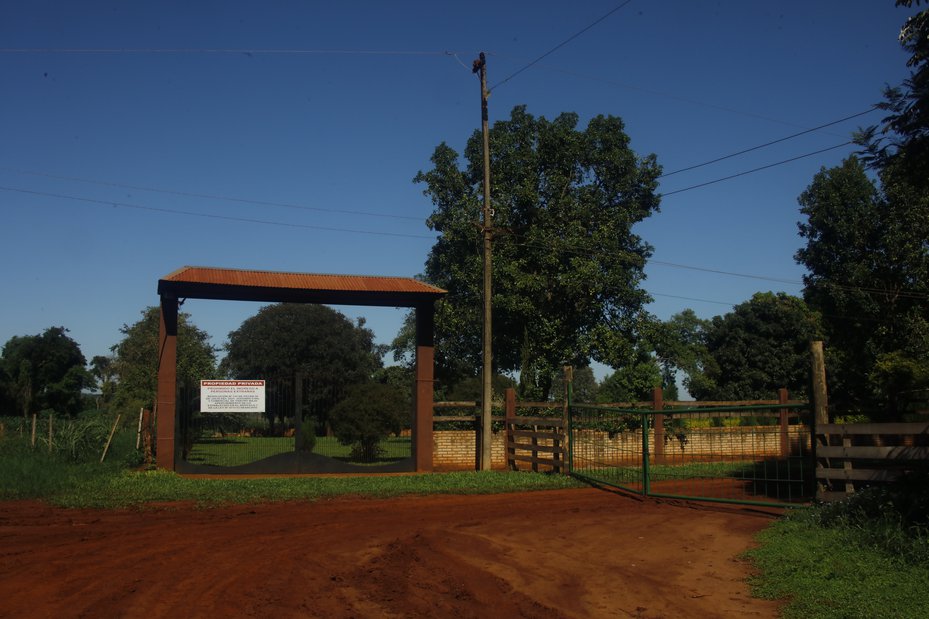
A GATE INSTALLED BY A SOY PRODUCER BLOCKS ACCESS TO LAND TITLED TO THE KA’A POTY COMMUNITY. GLOBAL WITNESS
Soy producers
operating within the Ka’a Poty’s claim include Agricola Entre Rios and Agro Integracion.
Both Cargill and ADM source from Agricola Entre Rios, including via a local
intermediary named COPRANAR. Cargill also buys soy from Agro Integracion. Agricola Entre Rios did not respond to the allegations we put to
them, and despite extensive efforts we were unable to contact Agro Integracion.
Neither ADM nor Cargill denied sourcing from Agricola
Entre Rios or Agro Integracion, or any specific soy producer our research
identified as their suppliers. Both US firms indicated they had initiated investigations into the
violations of their policies uncovered by our research. On 13 September,
two weeks after receiving information from Global Witness, ADM said a record of
its investigation into community cases in this report would be available in its
public grievance log ‘in the next few days’. No such record had been published
at the time of writing.
On 19 September, ADM claimed that its preliminary
investigation had found that “none of the properties/farms (polygons) belonging
to suppliers that source for ADM overlap, or encroach in any way, with either
Indigenous Territories or community settlements of smallholders. None of the
farms from where ADM sources soy suffered evictions.” However, it did not
explain how this could be the case in relation to Cerrito or Ka’a Poty
communities. Nor did ADM indicate it had consulted with relevant communities.
ADM’s grievance protocols require the company to engage with relevant
stakeholders and publish a record of issues on its public grievance log within
two weeks of receipt of information about policy violations.
How soy conquered eastern Paraguay
Most of this expansion occurred in the country’s lush
subtropical east, displacing the great Atlantic Forest which spilled into
Paraguay from Brazil’s Atlantic Coast. Between 1973 and 2000, two-thirds
of Paraguay’s Atlantic Forest vanished - a loss of 40,000 square kilometres, an
area around the size of Switzerland.Now, what remains of this forest is protected by a zero-deforestation law.
But while soy production today drives less deforestation in Paraguay than in neighbouring Brazil,
it is fuelling a wave of conflict and dispossession that has gone unnoticed
outside the small South American nation.
“We hunted in the forest, we fished in the forest, we extracted honey and medicinal plants. And now what has happened? The forest is gone. There’s only soy, nothing else is left.”
Arnalda Martínez, member of the Cerrito Indigenous community
The stories of Cerrito and Ka’a Poty reveal only a fraction
of this crisis. In just one year, between 2020 and 2021, rights groups
documented twelve forced evictions of Indigenous communities, affecting 725
Indigenous families. They also registered a further ten violent attempts to
force small-scale farming or campesino communities off their land.
Nearly all these conflicts were related to soy production to
meet overseas demand. 90% of Paraguay’s soy harvest is exported.
Around 40% of these exports are handled by either ADM or Cargill. The European Union (EU) is the single biggest destination for Paraguayan soy, while the UK is fourth:
potentially implicating millions of consumers across Europe in human rights
abuses against Paraguay’s Indigenous and campesino communities.
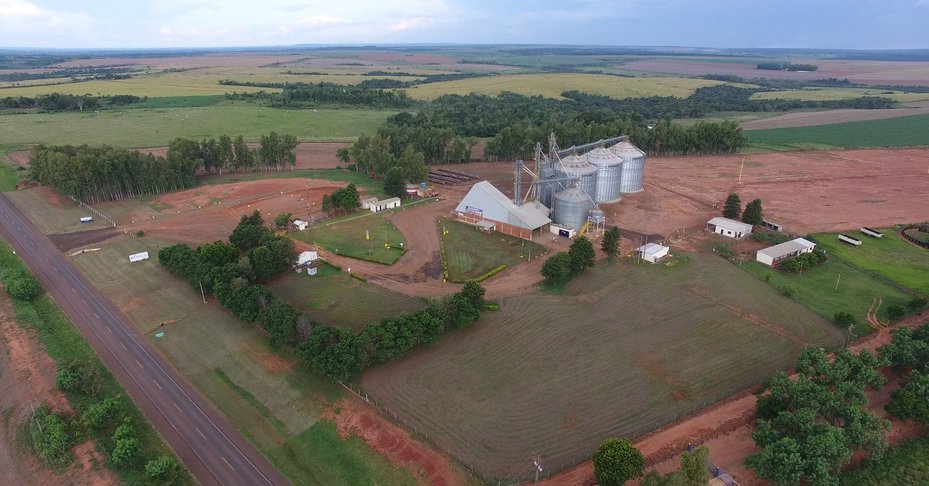
A SOY SILO OWNED BY BUNGE IN EASTERN PARAGUAY. GLOBAL WITNESS
The Yerutí colony
Ruben Portillo was just 26 years old when he noticed painful sores on his face and
fingers. At first he ignored them, continuing to work on his family
farm in the village of Yerutí, planting beans and watermelons in the sweltering
Paraguayan summer. But a few weeks later, he developed a high fever, nausea and
diarrhoea. Before long, he didn't have the strength to stand up.
His sister, Norma, hired a pick-up truck to take him to
the nearest hospital. But it was too late: he died on the way.
Over the next few days, 22 other Yerutí residents were
admitted to the same hospital, including Ruben’s two-year-old son Diego. The
influx alarmed the hospital’s director. Noting that it was January, a month
when intense fumigations precede Paraguay’s soy harvest, she contacted the
Environment Ministry to voice her concerns.
A week later, government inspectors travelled to Yerutí.
They documented a catalogue of egregious violations of Paraguay’s environmental
law: large soy extensions bordering family farms with no buffer zone separating
the two; soy seeded to the verge of community footpaths, with no protective
strip of vegetation shielding residents. Tests found endosulfan, aldrin and lindane, all either banned or restricted in Paraguay, in the well water from which the Portillo family drank.
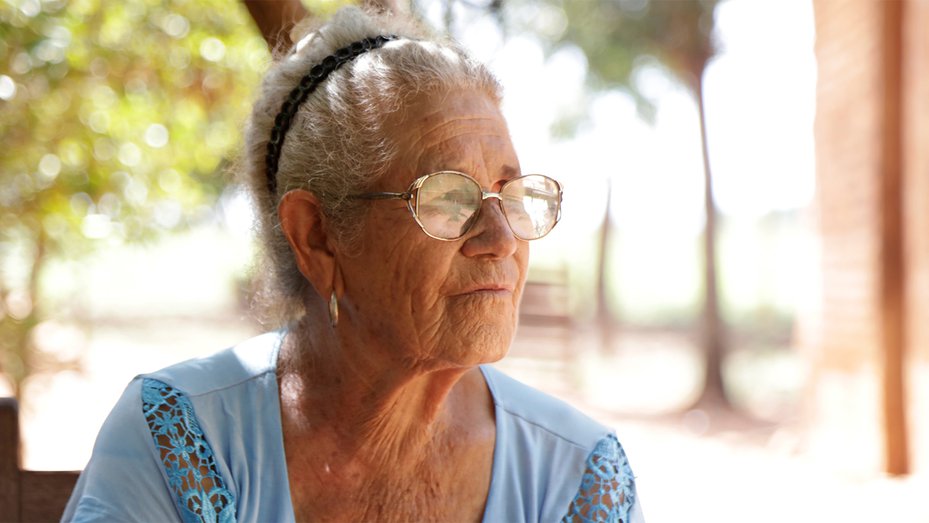
HERMENEGILDA CÁCERES, MOTHER OF RUBÉEN PORTILLO, MARCH 2022. GLOBAL WITNESS
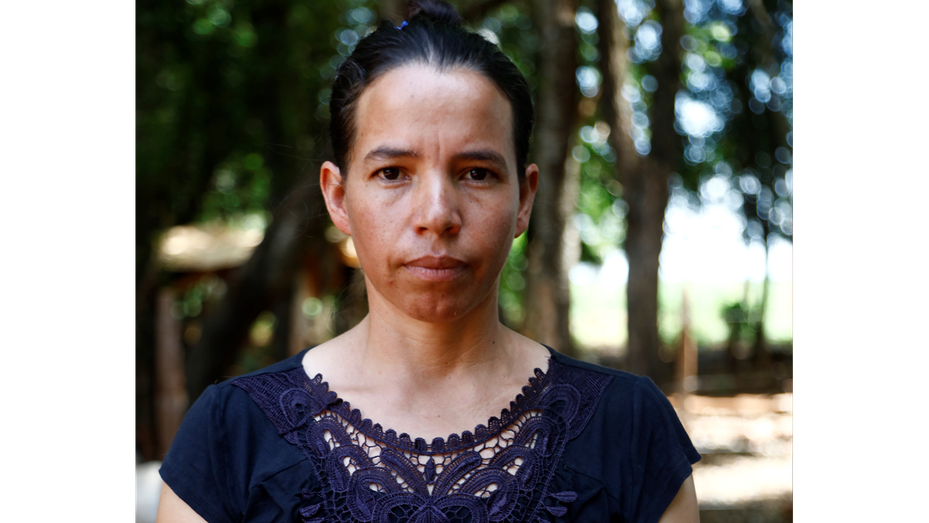
ISABEL BORDON, PARTNER OF RUBÉEN PORTILLO, A YERUTI RESIDENT WHO DIED OF PESTICIDE POISONING FOLLOWING ILLEGAL FUMIGATIONS OF SOY PRODUCERS SUPPLYING MAJOR INTERNATIONAL TRADERS. GLOBAL WITNESS
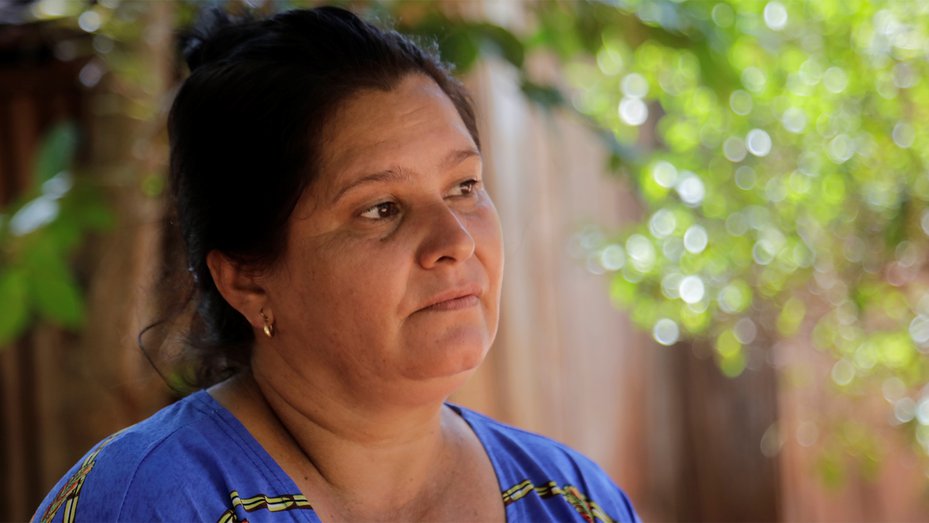
NORMA PORTILLO, SISTER OF RUBEN PORTILLO, IN YERUTI, MARCH 2022. GLOBAL WITNESS
The inspectors also flagged flagrant negligence on the
part of two companies, Hermanos Galhera and Condor Agricola,
cultivating soy near the homes of the victims. “The bad management of
chemical containers, scattered over the ground,” was causing chemical residues
to seep into water sources, they observed.
Both firms washed their spraying equipment in streams used by the community,
and neither had an environmental permit authorising their operations.
“Neither of the two met the most basic standards of environmental control,” one of the inspectors told a local Catholic radio station.
On the back of these findings, both firms were issued
administrative fines. But they appealed the decision and, shortly afterwards,
the cases against them were dropped.
Norma, however, refused to abandon the fight for justice.
Giving up on the Paraguayan justice system, she took her brother’s case to the
United Nations (UN). Six years later, the UN Human Rights Committee
issued a damming resolution, concluding that the Paraguayan government's
inadequate response to the illegal soy fumigations violated a series of
fundamental human rights, including the right to life, the right to home and
family, and the right to remedy from harm. “More than eight years after
the events reported, the investigations have made no progress," the
resolution finds, emphasising the state’s failure to conduct an autopsy on
Ruben’s body, “even though one was requested on four different
occasions”, or to publish the results of any blood or urine tests performed on
the victims.
Accordingly, the UN ordered the Paraguayan government to
“undertake an effective and thorough investigation into fumigations with
agrochemicals”
and “impose criminal and administrative penalties on all the parties
responsible.”
In particular, the resolution highlights the role of the companies Hermanos
Galhera and Condor Agricola.
Three years since the resolution was issued, however, no one has been penalised for Ruben’s death.
Meanwhile, the situation in Yerutí continues to deteriorate. When Norma first
brought her case to the UN, soy fields hadn’t reached her lot, she says. Now,
monocrop production runs right up to her fence, scorching the pasture for her
small herd of cows and blighting the crops in her vegetable garden. “They’re
fifty metres from my house without any barrier,” she laments.
The inexorable advance of soy monoculture has eroded the
entire community, residents say. Yerutí was founded amid the optimism of the
initial post-Stroessner years, on land that a former Minister of Education had
returned to the state as compensation for embezzling public funds. Then, it had
223 lots, each busy with activity. Now, just over 30 remain. In
2021, authorities closed the village’s
school, citing a shortage of
students. Diego,
who survived the poisoning which killed his dad and is now a teenager, must
travel 20 kilometres every day just to attend classes. With no public
transport, he drives there on a motorcycle.
Global Witness found Hermanos Galhera continuing to
operate just a few kilometres from Yerutí, harvesting soy and delivering it to
ADM, which owns a silo 10km from Yeruti. Hermanos Galhera also supplies soy to
Cargill and Bunge, according to soy industry insiders. Condor Agricola also
continues to operate in the local area and likely
supplies soy to ADM.
Neither Hermanos Galhera nor Condor Agricola responded to the allegations we
put to them.
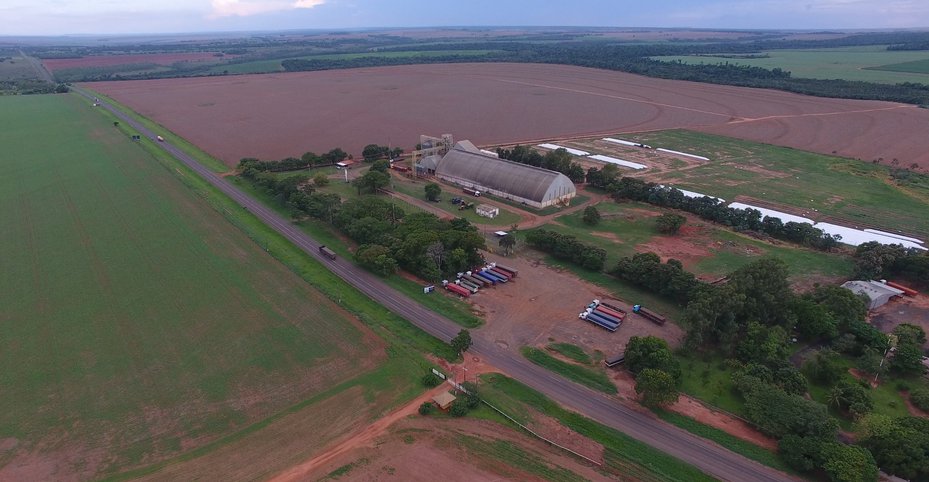
ADM’S SILO AT CURUGUATY, CANINDEYÚ, SUPPLIED BY HERMANOS GALHERA, A SOY PRODUCER NAMED IN A UN RESOLUTION AS HAVING ILLEGALLY FUMIGATED SOY CROPS NEIGHBOURING YERUTI COLONY. GLOBAL WITNESS
The Campo Agua’e community
Two years after condemning state failures in Yerutí, the UN
issued another ruling denouncing the devastating impact of fumigations on a
nearby Indigenous community.
Campo Agua’e is the fruit of a
decades-long struggle by Ava Guaraní leaders to safeguard a piece of their
ancestral territory. Settled in the 1960s, as Stroessner’s March to the East
was gathering pace, the community today consists of 980 hectares that were
expropriated from a local agribusiness. For the Ava elders who fought for the
land – now buried in a cemetery on a nearby hillside – it ensured a space for
their descendants to maintain their culture.
But it’s this very culture that is threatened by unchecked
and illegal fumigations. The
destruction of local biodiversity is eroding “traditional knowledge associated
with Guaraní cultural practices of hunting, fishing, gathering and
agroecology,” the UN finds, citing community concerns that “fruit trees have ceased producing
fruit” and “wild beehives disappeared due to the mass mortality of bees.”
Elements essential to Ava dance and ritual – such as wax for ceremonial
candles, or a specific variety of maize needed to make a fermented drink named
chicha – have vanished, community members report, while ceremonial baptisms have ceased taking
place, as the necessary materials are no longer obtainable.
The
loss of such ceremonies denies children the rites crucial to strengthening
their cultural identity,” the UN resolution warns.
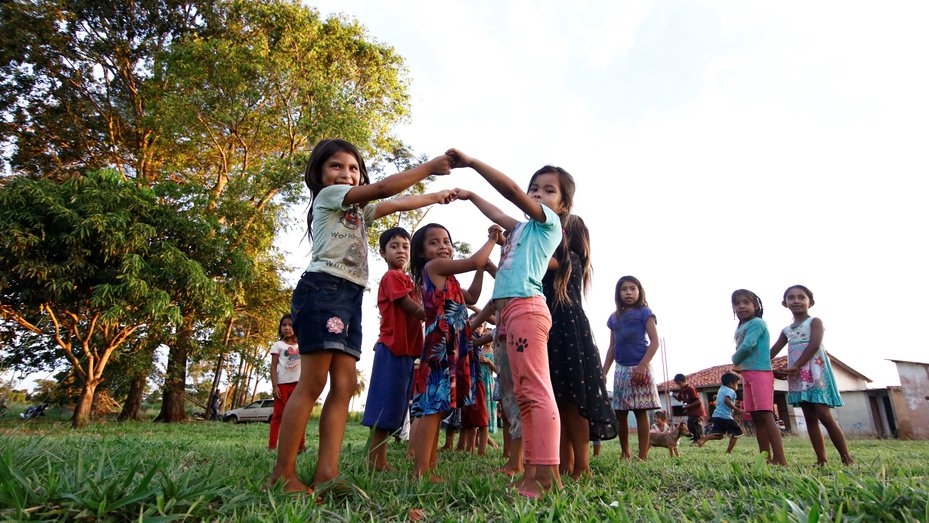
CHILDREN PLAY IN FRONT OF THE SCHOOL AT CAMPO AGUA’E, WHERE EDUCATION HAS BEEN SEVERELY IMPACTED BY ILLEGAL PESTICIDE FUMIGATIONS BY SOY FARMERS SUPPLYING ADM, BUNGE, AND CARGILL. CREDIT: GLOBAL WITNESS
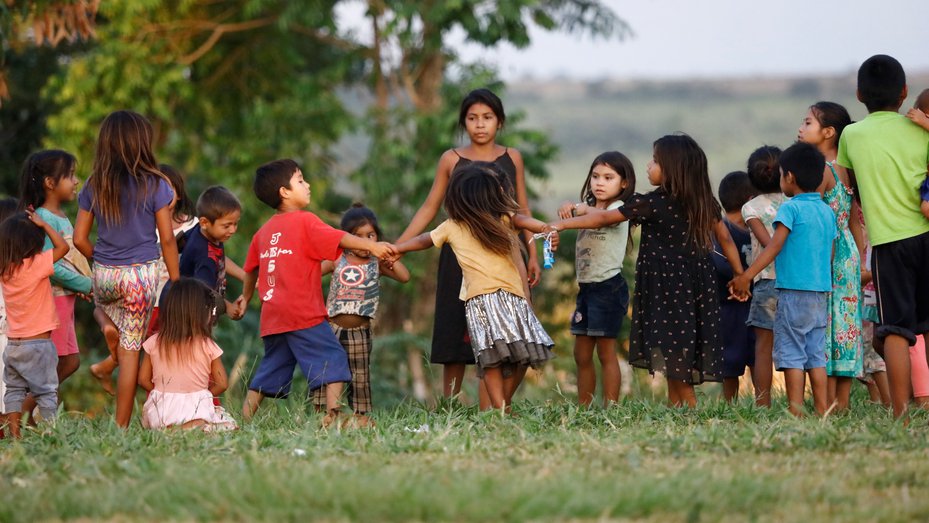
CHILDREN PLAY AT CAMPO AGUA’E, AN AVA GUARANÍ COMMUNITY IMPACTED BY ILLEGAL SOY FUMIGATIONS IN CANINDEYÚ DEPARTMENT, PARAGUAY. GLOBAL WITNESS
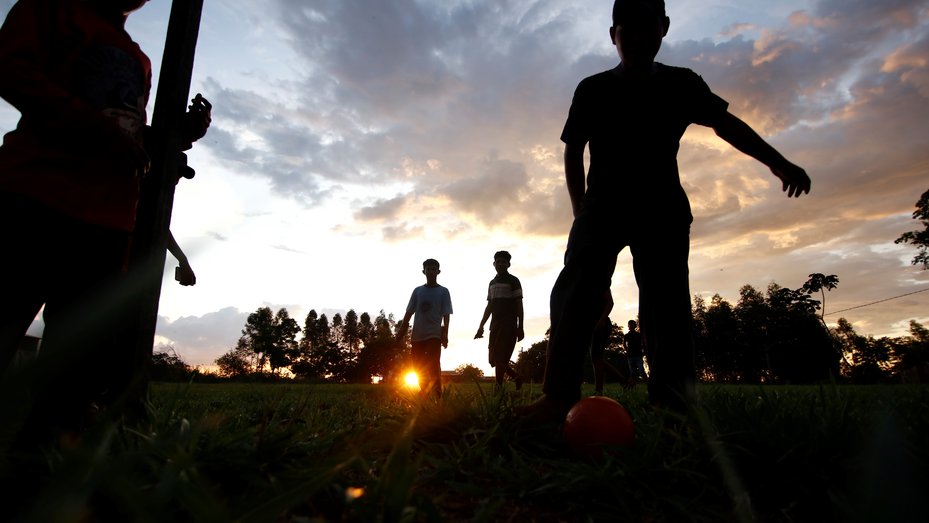
AVA GUARANÍ BOYS PLAY FOOTBALL AT CAMPO AGUA’E. GLOBAL WITNESS
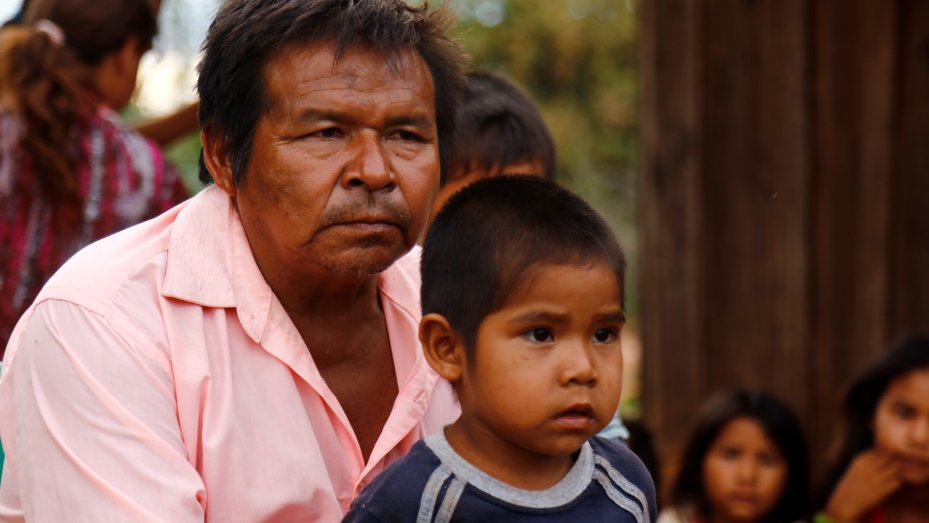
LUCIO SOSA, A TEACHER IN THE CAMPO AGUA’E COMMUNITY, WHO SPEARHEADED APPEALS TO THE UNITED NATIONS FOLLOWING THE PARAGUAYAN STATE’S FAILURE TO PROTECT THE SETTLEMENT FROM ILLEGAL SOY FUMIGATIONS. GLOBAL WITNESS
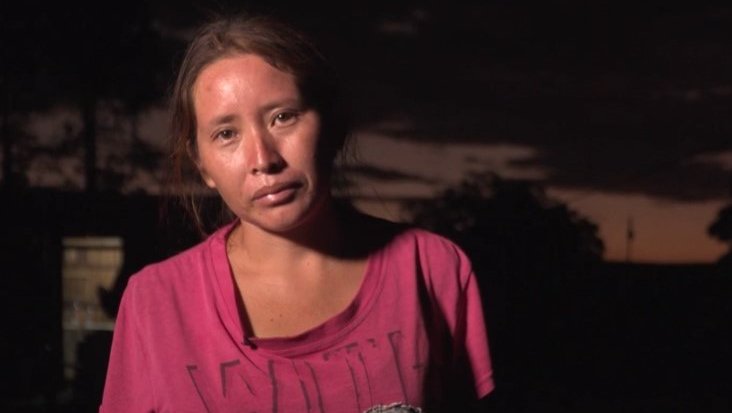
ROSANA RIVEROS, A VICTIM OF PESTICIDE POISONING IN CAMPO AGUA’E, 7 MARCH 2022. GLOBAL WITNESS.
Indeed, the fumigations have had particularly severe impacts
on the community’s schoolchildren. A 2009 government inspection discovered
spraying just ten metres from the school while children were in class, an
egregious violation of Paraguayan law, which stipulates a
minimum distance of 100 metres. It also discovered unregistered agrochemicals on the property of one of the two
firms responsible for the illegal fumigations, Issos Greenfield, and concluded
that they “
systematically failed to comply with environmental regulations."
“We got ill, we had terrible headaches, we had
diarrhoea, coughs, fever,” says Rosana Riveros, a young woman now in her early
twenties who studied in the community’s school. “It was very difficult to concentrate, we couldn’t learn what we needed
to.”
An investigation was opened into these violations, but,
mirroring the experience of Norma in Yerutí, it was soon dropped without anyone
being prosecuted. “More than 12 years after
the victims filed their criminal complaint regarding the fumigation with toxic
agrochemicals, to which they have continued to be exposed throughout this
period, the investigations have not progressed in any meaningful way and the
State party has not justified the delay,” the UN observed in October 2021.
“It’s all written in
the law, but who’s going to enforce it if not them?” asks Lucio Sosa, Riveros’
teacher, who has spearheaded the community’s battle against soy production.
While operating next to Campo Agua’e, Issos Greenfield
received financing from ADM and sold soy produced on the land to the US firm.
Issos Greenfield ceased working in the area a few years ago; now, a Paraguayan
firm named Somax SA operates there.
While Somax is not responsible for the violations committed by Issos, both the UN
and community residents state that fumigations continue to seriously impact the
community. Sosa reports that Somax has installed the required protective
barriers in some places, but not others. Community leader Benito Oliviera, who
worked with Lucio on the appeal to the UN, is more emphatic: “the situation has
not improved at all. It’s getting worse and worse as the days go by.”
Somax has sold soy from the land to ADM, Cargill and Bunge,
all of whom have silos within ten kilometres of Campo Agua’e.
ADM did not deny sourcing from either Hermanos Galhera or
Condor Agricola. Nor did it deny sourcing soy from Issos Greenfield or Somax
SA, or having financed Issos Greenfield after the Paraguayan government had
accused the firm of conducting illegal fumigations. Neither Cargill nor Bunge denied sourcing
from Somax SA. All three US companies said they had initiated
investigations into the violations of their policies uncovered by our research.
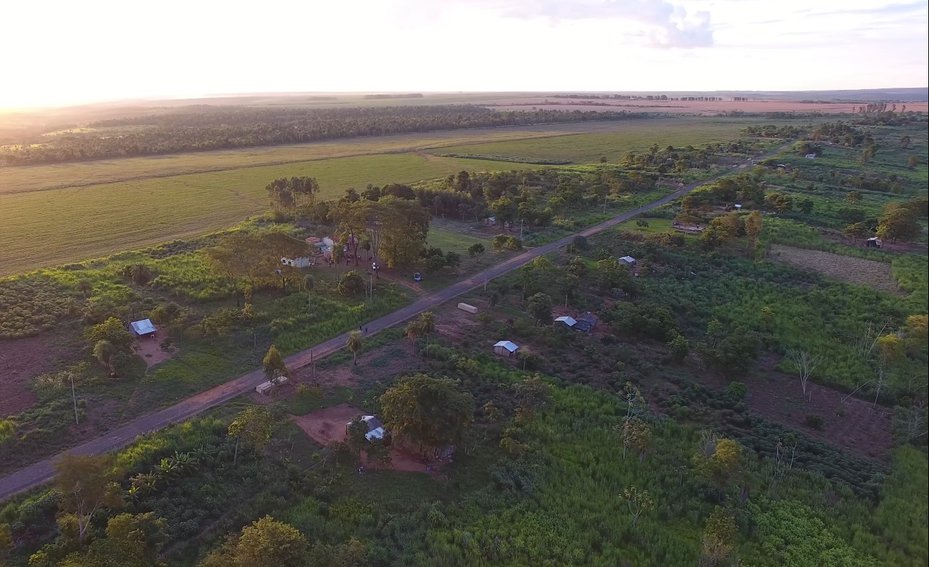
CAMPO AGUA’E IS SURROUNDED BY EXTENSIVE SOY PLANTINGS, THE ILLEGAL FUMIGATION OF WHICH HAS SEVERELY IMPACTED THE COMMUNITY. GLOBAL WITNESS
A land soaked in pesticides
The expansion of Paraguay’s soy industry has paralleled a
massive increase in the country’s use of agrochemicals. Imports of these
products – principally the pesticides glysophate, 2.4D and paraquat
– grew almost sixfold between 2009 and 2017, increasing from 8,800 to 52,000
tonnes. One study estimated that, in 2017, Paraguay – home to 0.09% of the
global population – imported more than six per cent of all the agrochemicals
sold in the world: 7.4 kilograms of agrochemicals per inhabitant.
Paraguayan law mandates a buffer zone of at least 100 metres
between fumigations and human settlements, including schools and health
centres.
This is already weak compared to similar jurisdictions: neighbouring Argentina
requires a buffer zone of at least 500 metres.
But, in Paraguay, as the experiences of the two communities above demonstrate,
even the rules that do exist are rarely enforced.
Nor are Yeruti and Campo Agua’e isolated cases. In October
2022, the UN Rapporteur for toxic substances and human rights issued a damning
assessment of the situation in Paraguay. Ordering the government to comply with
the Yeruti and Campo Agua’e rulings, he concluded that “laws on pesticide use
aren’t enforced” and that this “generates impunity before violations of the
human rights of thousands of people exposed to toxic contamination.”
During a visit to the country, he found many Indigenous and
campesino communities surrounded by vast monocrop plantations. "Those who
oppose the contamination of their communities are frequently criminalised by
the Public Ministry,” he observed.
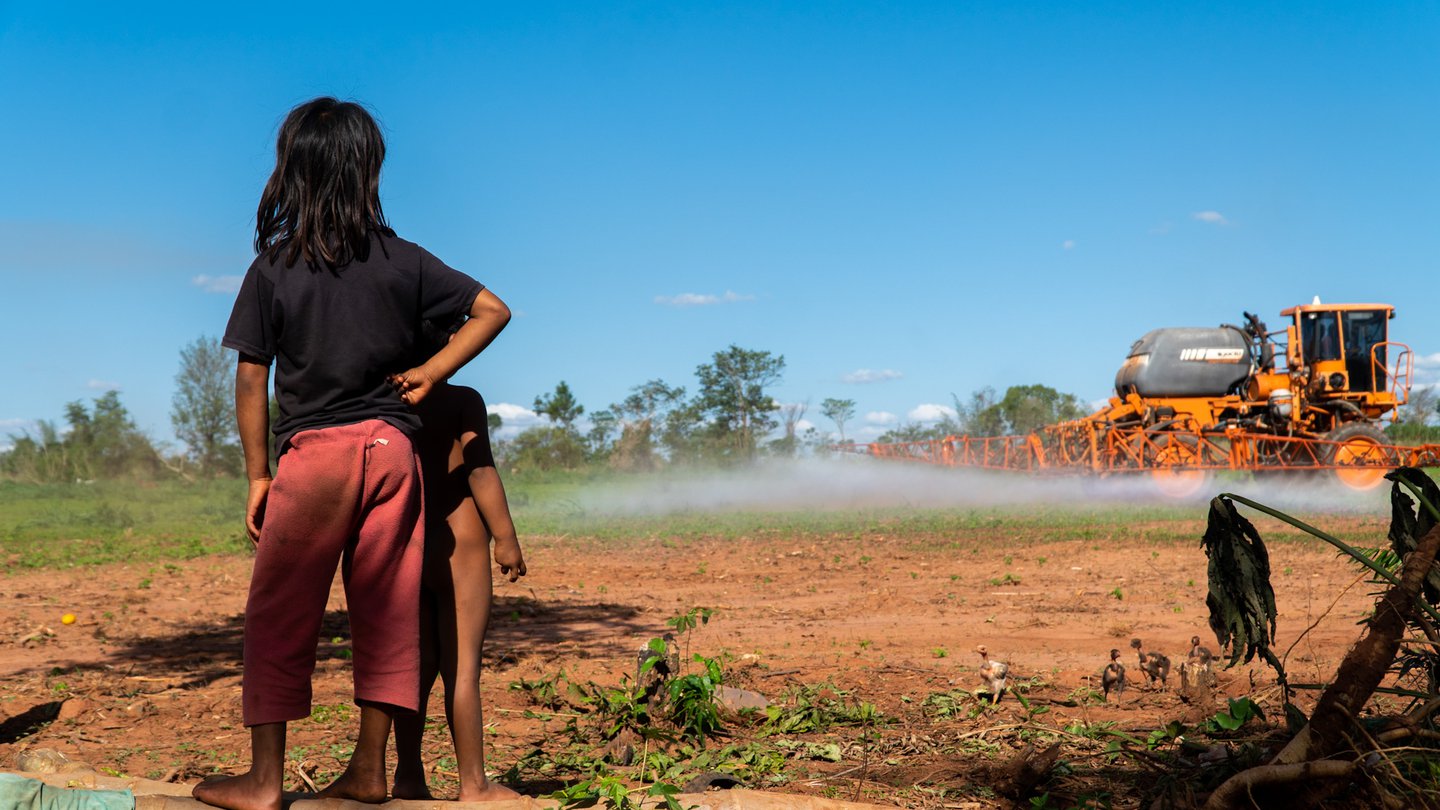
AVA GUARANI CHILDREN OBSERVE PESTICIDE SPRAYING AT THE EDGE OF THEIR VILLAGE, CAMPO AGUA'E. © NEIL GIARDINO / @NEILGIARDINO
Another recent
study highlighted the impact on schoolchildren. Published in 2020, it identified 51 schools within 100
metres of extensive monocrop plantations,
putting the health of almost 4,000 pupils at risk.
In some instances, researchers discovered that schools were closing for days at a time when
fumigations were at their most intense.
One seriously impacted district is Minga Pora, in Alto
Paraná- the same district in which the Cerrito community is fighting to return
to its ancestral land. Nearly a third of Minga Pora’s schools
– eight out of 25 – are within 100 metres of intensive fumigations, the study
found.
As in other districts visited by the researchers, community members said they’d
complained to the local authorities, but reported that no action had been taken.
The state is complicit to the degree that people have stopped bothering to denounce violations, and instead resort to negotiating directly with the soy farmers.
The Sixth Line of Yvype colony
Aida Gonzalez knew that when she
and her neighbours decided to fight for a piece of land that had been usurped
by soy producers, she would be taking on powerful interests. Five
years later, she has endured a series of violent evictions, attacks by armed
civilians, and repeated threats of
imprisonment. Now she is facing renewed efforts to jail her and others
for up to ten years, simply for resisting illegal land grabs by agribusiness in Paraguay.
Aida is one of many people from
traditional farming families in Paraguay who lack any access to land. With most
of the country’s fertile land occupied by large-scale agribusiness, hundreds of
thousands of landless farmers live with relatives in overcrowded houses in Paraguay’s
impoverished towns and villages.
Together with neighbours in this
same situation, Aida identified state land in an old small-scale farming or campesino
community which had been irregularly occupied by soy producers. The soy
producers had begun cultivating land after it was abandoned by its original
residents, campesinos who were driven out by intensive
fumigations. “The plantations surrounded me, they were 28 metres from my door,”
says Catalino Silva, one of the few original residents who refused to leave.
Silva blames “fumigations, corruption, state abandonment” for the
disintegration of his hometown, named the Sixth Line of Yvype Colony.
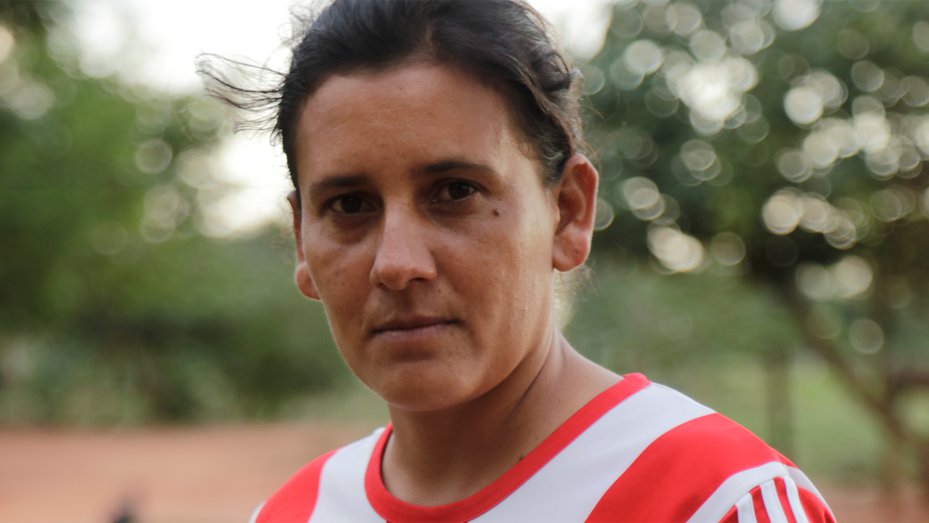
FRANCISCA PORTILLO, RECOUNTED HOW, IN MARCH 2021, POLICE AND ARMED CIVILIANS FORCED FOURTEEN FAMILIES FROM THEIR HOMES AND BURNT THEIR CROPS AND POSSESSIONS. GLOBAL WITNESS
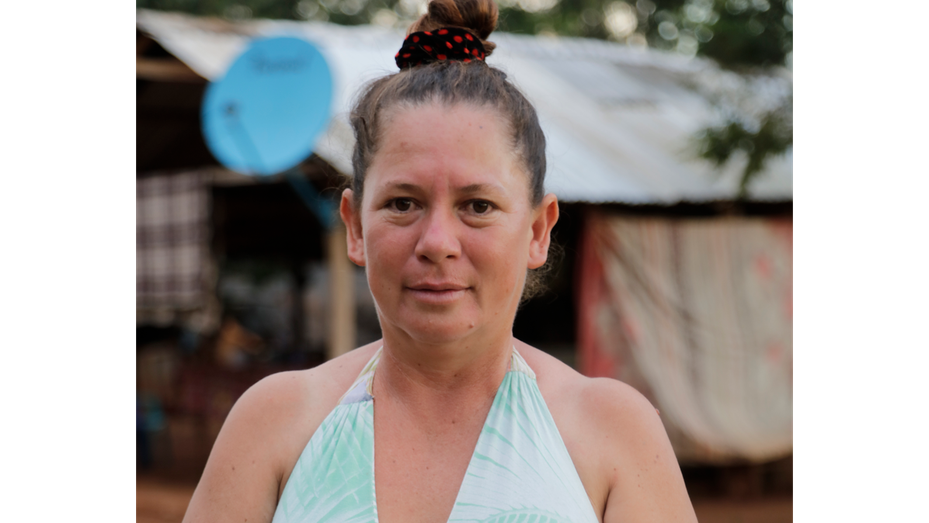
AIDA GONZALEZ HAS SUFFERED YEARS OF CRIMINALISATION AND MULTIPLE EVICTIONS FOR DEFENDING HER RIGHTS TO LAND AND HER HOME IN THE SIXTH LINE OF YVYPE COLONY. GLOBAL WITNESS
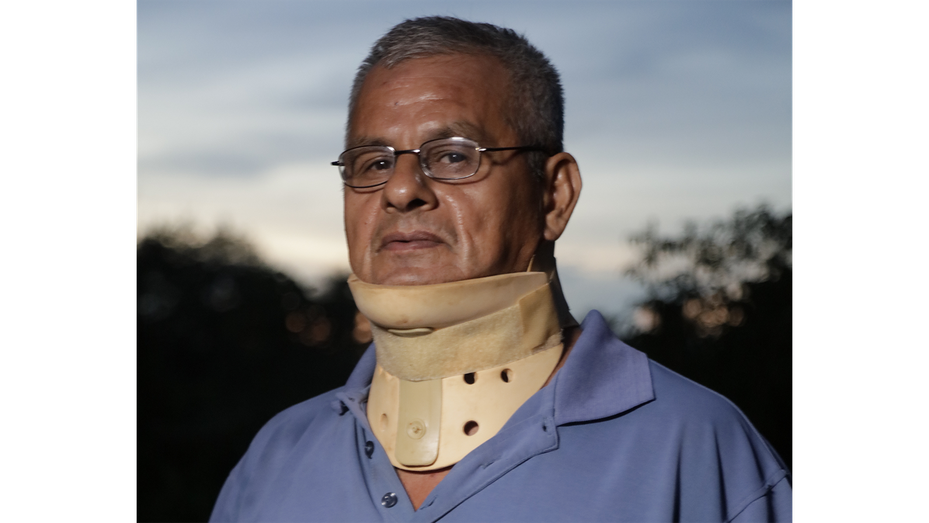
CATALINO SILVA, AN ORIGINAL RESIDENT OF SIXTH LINE OF YVYPE COLONY BLAMES “FUMIGATIONS, CORRUPTION, STATE ABANDONMENT” FOR THE DISINTEGRATION OF HIS HOMETOWN. GLOBAL WITNESS
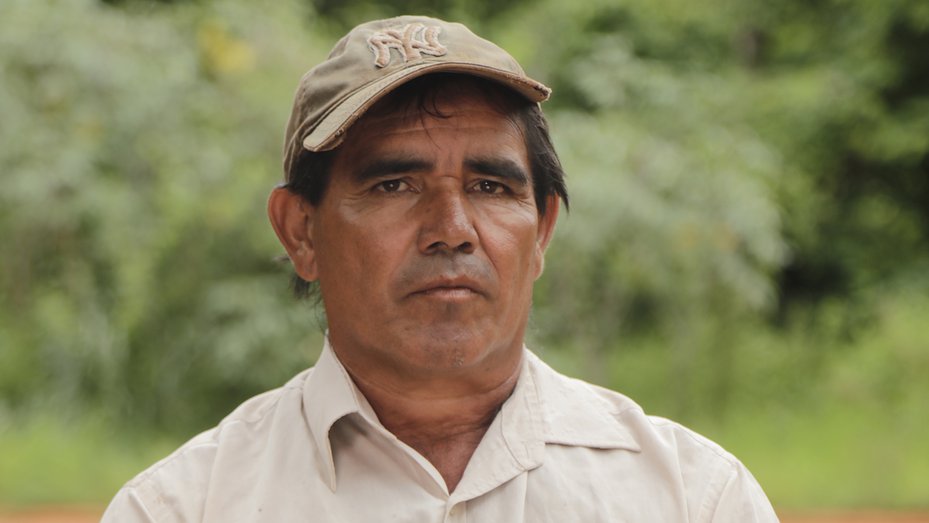
GERARDO LEZCANO, A FARMER, TOLD GLOBAL WITNESS HIS PREGNANT WIFE LOST THEIR BABY DAUGHTER AFTER A LARGE FORCE OF MOUNTED POLICE CHARGED THE COMMUNITY AND THEIR HOME WAS DESTROYED IN A JULY 2021 EVICTION. GLOBAL WITNESS
Hearing of the situation in
Yvype, Aida and her neighbours decided to petition for the abandoned land
to be delivered to them. They made their claim under Paraguay’s agrarian reform
laws, which require that state land should be delivered to
small-scale farmers rather than large-scale agribusiness. And they adopted the traditional tactic of land activism
in Paraguay to force an indifferent state to act: in 2017, they occupied the
land they were claiming.
Just as Aida expected, the
occupation produced a ferocious response from the soy producers. Through the
next four years, they instigated a series of evictions, in which both police
and armed civilians repeatedly
destroyed homes and crops. One producer, Georg Matthies Derksen, countered with a
raft of criminal charges against Aida and others, seeking to prosecute them for
property invasion among other crimes. At one point, Aida and another activist, Ceferino
Peralta Lopéz, spent two weeks in jail.
Then, four years after occupying
the site, Aida’s resilience finally paid off. Decisions over the
adjudication of state land are the prerogative of Paraguay’s State Land
Institute, named INDERT.
Initially, INDERT had ruled in favour of the soy producers, even allocating them land occupied by campesinos. But in 2021, the President of INDERT was dismissed amid
a corruption scandal. His replacement, Gail González Yaluff,
re-evaluated the Sixth Line case. She found “serious irregularities” in the
past administration’s favouring of the soy producers, concluding that – just as
Aida and her commission had argued – their stance was “in total violation of the Agrarian Statute.” Accordingly, Gonzalez revoked several of those rulings
and moved to “suspend all procedures relating to Yvype Colony”.
After four years of struggle, it
finally seemed that their effort was paying off – and that the Sixth Line
community might spring back to life.
But in Paraguay, which languishes in 128th place
in Transparency International’s 'Corruption Perceptions Index',
things are never so simple. Instead of complying with INDERT’s ruling, the soy
farmers intensified their attacks. In March 2021, police and armed civilians
forced fourteen families from their homes and burnt their crops and
possessions.
Four months later, another six families were evicted by a huge force of police,
some mounted on horseback.
“My wife was pregnant and the sight of a hundred police riding towards us
terrified her,” says Gerardo Lezcano, a soft-spoken farmer whose home was
destroyed during the July eviction. “She lost the baby, our daughter that she’d
been carrying for eight months.”
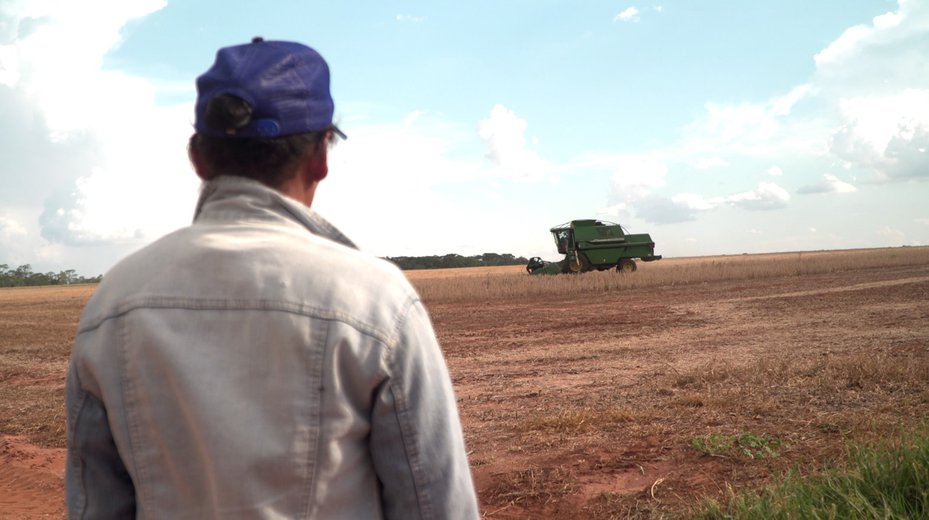
FRANCISCA PORTILLO, OF THE SIXTH LINE OF YVYPE COLONY, OBSERVES HARVESTERS WORKING LAND FROM WHICH SHE WAS EVICTED. GLOBAL WITNESS
Simultaneously, Matthies Derksen, ramped up efforts to
imprison the campesinos. Aida and several other community members face charges
of land invasion, which, following a recent change in the law, can carry a
prison sentence of up to ten years. The accused face a preliminary hearing in November 2022,
based on alleged trespass committed in October 2021 – after INDERT’s resolution
identifying “serious irregularities” in Derksen’s possession of the land.
“For demanding our rights, for
the simple act of asking for access to a piece of land, they see us as
criminals,” Aida says.
Matthies Derksen has also gone
after the new President of INDERT herself. In 2021, he lodged a criminal complaint accusing her of instigating criminality. INDERT responded
with a defiant statement, accusing Matthies Derksen of trying to “intimidate”
the administration in order to “obtain illegal ownership of rural properties
for extensive exploitation.”
“The legal tricks planted by
certain sectors constitute a flagrant attempt to bully this administration,”
the statement reads, ending: “WE WON’T BE INTIMIDATED BY SECTORS MOTIVATED BY
DARK INTERESTS!"
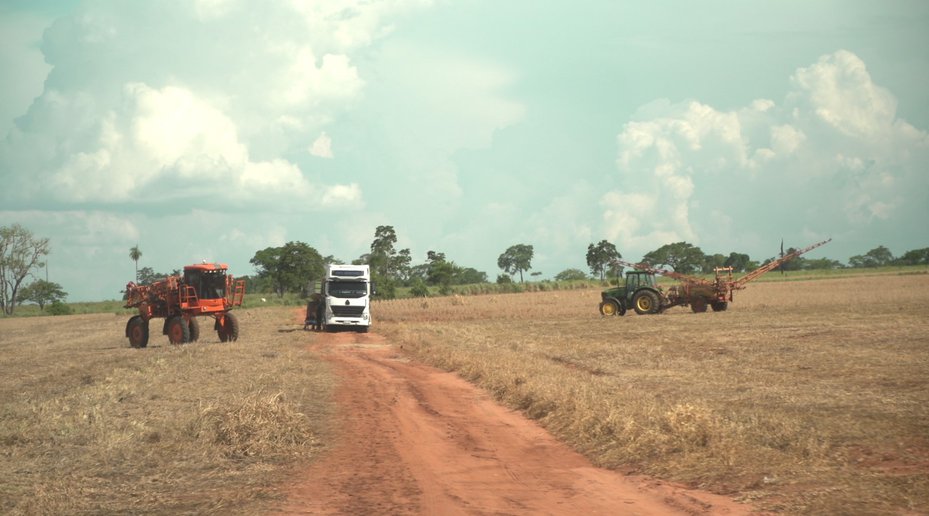
SOY BEING HARVESTED ON LAND FROM WHICH FRANCISCA PORTILLO WAS EVICTED IN 2021. GLOBAL WITNESS
However, while criminal charges hang over Aida and Ceferino,
INDERT is powerless to rule in their favour, as the charges against them
prohibit them being awarded state land. And should Derksen’s campaign to imprison them be successful, they could face
years in Paraguay’s brutal and overcrowded prison system.
Matthies Derksen
belongs to a cooperative named Friesland. He supplies soy both to a silo operated
by the cooperative and reportedly to a second nearby silo owned by a similar
cooperative, named Volendam. All soy delivered to the Friesland silo
is exported by the Russian grain giant Sodrugestvo. ADM and Cargill are the two international
traders with soy infrastructure including silos and ports closest to the
Volendam cooperative.
The soy producer
responsible for evicting Gerardo Lezcano and his family sells soy to a nearby
silo called Seagri, which has a long-established supply relationship with
Cargill.
Neither Matthies
Derksen, Friesland, Volendam, nor Seagri responded to these allegations when we
contacted them. Cargill did not deny it sources from Derksen’s properties via
Volendam, nor other properties within the community’s land claim via Seagri,
saying it had launched investigations into the violations of its policies
uncovered by our research.
Repression and resistance in the Paraguayan countryside
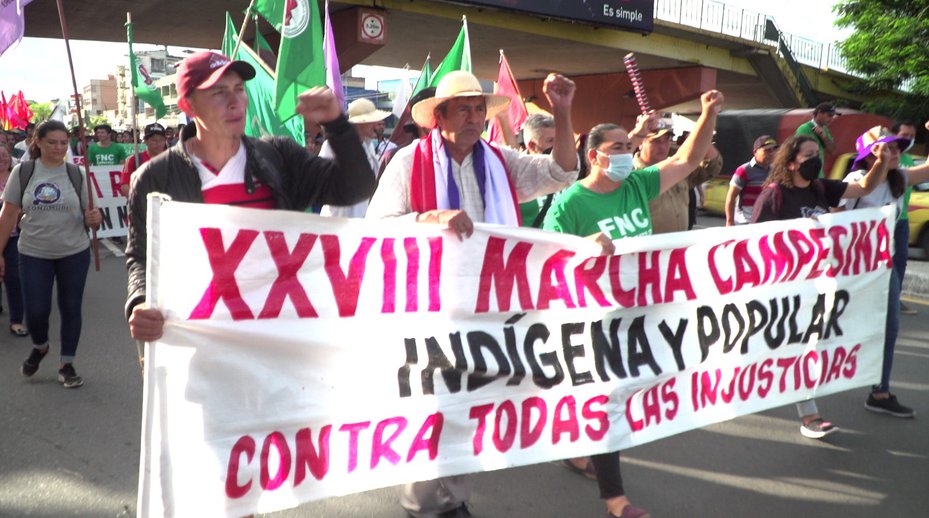
CAMPESINO AND INDIGENOUS PEOPLES MARCH AGAINST LAND INJUSTICE AND IMPUNITY, ASUNCION, 28 MARCH 2022. GLOBAL WITNESS
Paraguay
has one of the most unequal land distributions of any country in the world. Just
12,000 people own 90 per cent of Paraguayan land; the remaining 10 per cent is
split between more than 280,000 small and medium-sized producers. Beyond that
lies a destitute hinterland of 300,000 small-scale farming families without
access to any land at all. This generates a Gini coefficient of 0.93, far higher than anywhere else, even in the notoriously
unequal region of Latin America.
Multinational
corporations profit directly from this inequality. The UN estimates that only
6% of Paraguay’s agricultural land is available for domestic food production,
whilst 94% is used for export crops. Soy is by far Paraguay’s
single biggest export, and in 2020, 40% of soy exports were handled by either
ADM or Cargill.
Organisations
representing Paraguay’s traditional farming or campesino communities have
fought to resist this takeover. One, the National Federation of Campesinos
(FNC), claims to have won titles to more than 300,000 hectares since the fall
of the dictatorship in 1989. Their strategy involves
direct action: they identify lands that are illegally held by large-scale
producers, and then they stage occupations, demanding that the state recognise
the claim.
This
struggle, however, has come at a cost. At least 128 campesinos and campesinas have been assassinated, and thousands of farmers imprisoned,
since the return to democracy in 1989.
The
FNC’s goals are supported by experts. “It is of vital importance to fully
implement the long over-due Agrarian Reform,” the UN’s Special Rapporteur on
the Right to Food said during a 2016 mission to Paraguay. She
urged the government to “incorporate human rights principles in order to protect
smallholder farmers and their livelihoods.”
But
rather than pursue such measures, the Paraguayan government is intensifying its
repression of campesino activism. In 2021, President Benitez enacted a law
elevating the sentence for “property invasion” – the tool most often used to
criminalise those demanding land restitution – from six to ten years.
At
the same time, the government has slashed the budgets of the very state
institutions responsible for resolving land disputes. Both the Land Institute,
INDERT, and the Indigenous Institute, INDI, have seen their budgets slashed in
recent years. INDERT’s budget has fallen by two-thirds in just six years, from
US$ 43m (300 billion Guaraní) in 2014, to US$ 26.8m in 2019, to US$ 22.6m in
2020, to just US $15.62m (108 billion Guaraní) in 2021.
Similarly,
INDI experienced a 16% budget cut in 2021. Analysis by one Paraguayan rights
group found that the total budget destined for the purchase of land in 2021
would have enabled INDI to acquire just 600 hectares for Paraguay’s Indigenous
communities, a quantity it called “dramatically insufficient.”
Rights
groups in Paraguay draw a parallel between this lack of state capacity and low
taxes on agribusiness, Paraguay’s principal industry. Calculations by one
civil society group, BASE-IS, estimated that exporters of soy, wheat and corn –
which together represent over 10% of Paraguay’s entire GDP– contribute just 1.72% to the country’s total tax income.
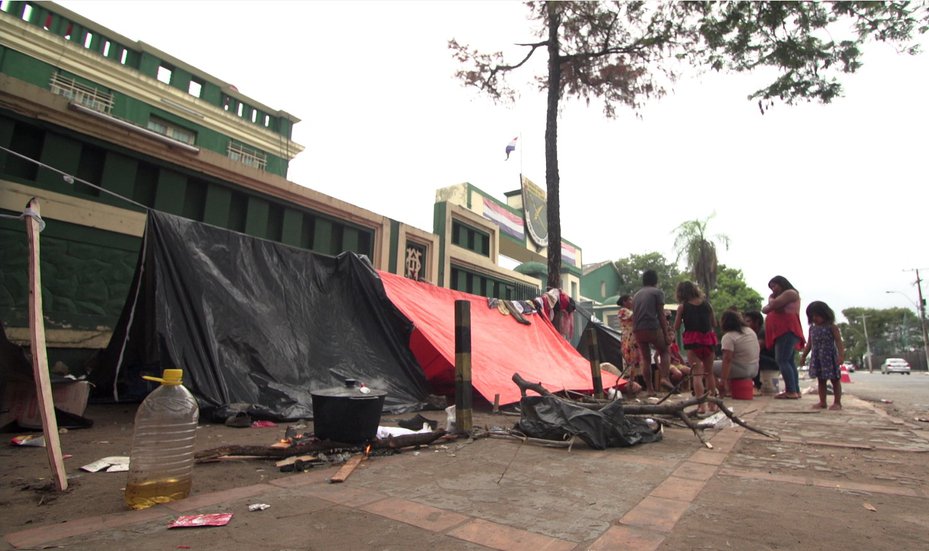
INDIGENOUS PEOPLE CAMPING OUTSIDE THE OFFICES OF INDI – PARAGUAY’S INDIGENOUS INSTITUTE (INSTITUTO PARAGUAYANO DEL INDIGENA) IN THE CAPITAL CITY, ASUNCION, IN MARCH 2022. GLOBAL WITNESS
In
the case of the commodity traders, tax figures obtained by Global Witness
indicate they pay only a fraction of the huge income they generate in Paraguay
back in tax. Customs data show that ADM exported US$ 512m of goods in 2020, a year in which the firm
paid US$6.18m in income tax – equivalent to just 1.2%
of the firm’s enormous export revenues. Cargill’s figures tell an even more
extreme story: in 2020, they exported US$ 713m worth of goods, while paying just US$ 1.46m
in income tax – representing barely 0.2% of their enormous export revenue. In its response to Global
Witness, ADM did not dispute these figures, but affirmed that it “has a firm
commitment to comply with all tax regulations in the country,” as proven by its
“audits and periodic reporting obligations.” Cargill did not comment on its tax
affairs.
These
low tax bills are aided by the lack of any soy export tax, in sharp contrast to
Paraguay’s neighbour Argentina, which imposes a levy of 33%. The UN’s Special Rapporteur
urged Paraguay to ”enact a law introducing tariffs on the export of grain,
including soya, which should help to increase tax revenues and, ultimately,
social expenditure.” However, attempts to create
such a tariff have been repeatedly struck down, both by Paraguay’s Congress and, on the one occasion it
successfully passed the legislature, directly by Presidential veto.
The Hugua Po’i community
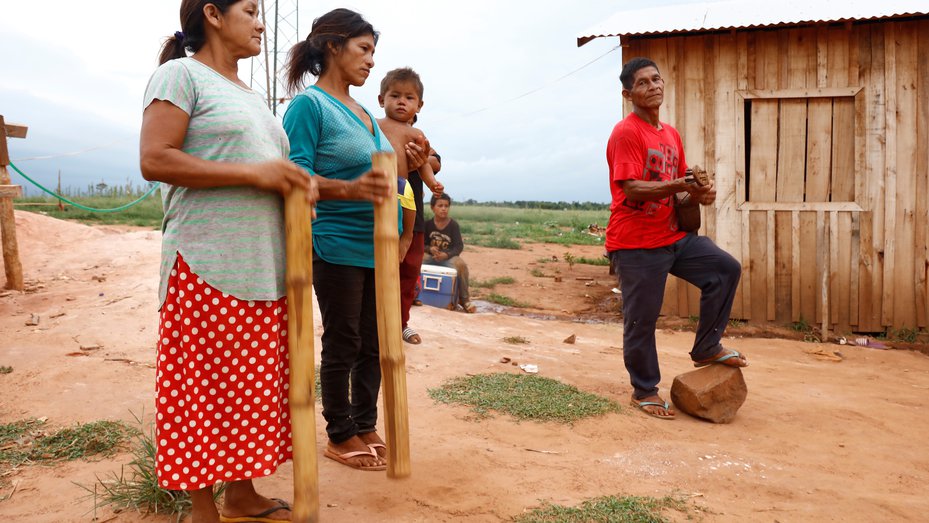
MBYA GUARANI INDIGENOUS ELDERS MAKE MUSIC FOR A CEREMONIAL DANCE AT HUGUA PO’I. GLOBAL WITNESS
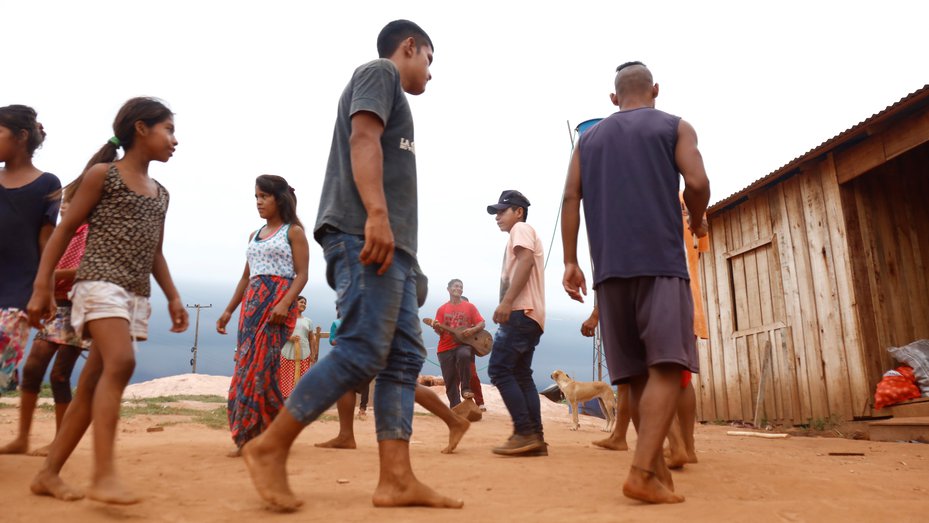
MEMBERS OF THE HUGUA PO’I COMMUNITY PERFORM A DANCE CELEBRATING THEIR CULTURE ON THEIR LAND. GLOBAL WITNESS
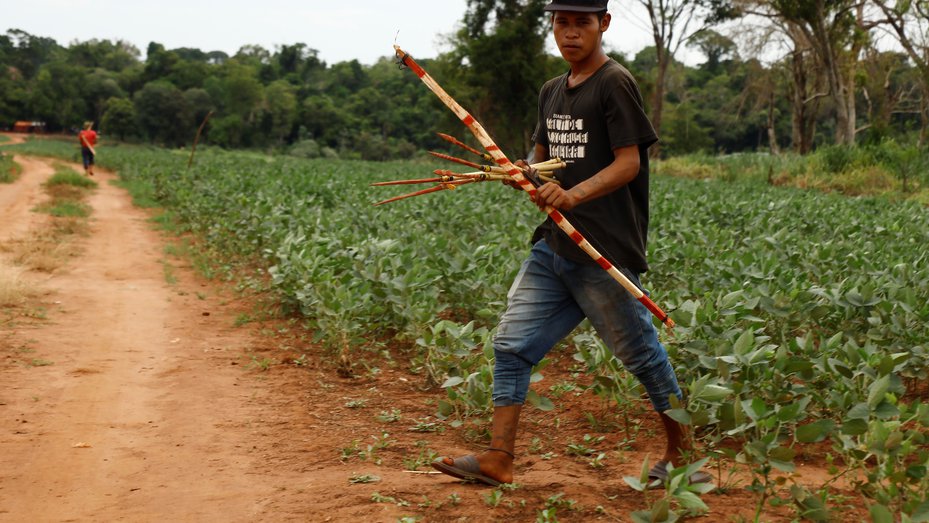
HUGUA PO’I COMMUNITY MEMBERS RETURN TO THEIR HOMES AMONGST SOY PLANTATIONS ON THEIR LAND. GLOBAL WITNESS
The residents of Hugua Po’i, an
Indigenous community in eastern Paraguay, had sworn to resist any attempt to
throw them out of their homes. But when the eviction came, the force was
overwhelming: 400 riot police, submachine guns, horses, a helicopter slicing
the air overhead. Armed solely with bows and branches, they had no option but
to abandon their village and step out into the pouring rain.
As police led people away, armed
civilians swept in from the soy fields to the north. Using tractors and chainsaws, these
men, working under the orders of local soy producers, destroyed
the community’s farms and croplands. They tore down their houses and set fire
to their opy, the spiritual temple of the Mbya Guarani, close relations
of the Ava in eastern Paraguay.
The villagers refused to be cowed, and just
three months after the eviction – which occurred on 18 November 2021 – they reoccupied the site. They began again the hard work of
constructing homes, planting crops, and building a new opy, located
close to an ancient burial ground.
But the threat of another eviction shadowed all this effort.
The same land was claimed by a local farming
cooperative named Tres Palmas. Tres Palmas acquired the land from the
Paraguayan state in 1977, with Mbya communities inside it – triggering the conflict that continues in Hugua Po’i today.
Aiming to prevent a second eviction, Paraguay’s Indigenous
Institute (INDI) sought a protective measure for
Hugua Po’i in the courts. Finally, at midday on 12 July 2022, it was granted.
But it came too late: that morning, hundreds of police had again encircled the
community, enforcing an eviction order from a local judge who, rights groups
argue, did not have competency to rule on the case. Hugua Po’i residents watched as their homes and crops
were razed for a second time. Two weeks later, one of Hugua Po’i’s youngest
members, a two-month-old baby named Néstor Villalba Mendoza, died of breathing difficulties.
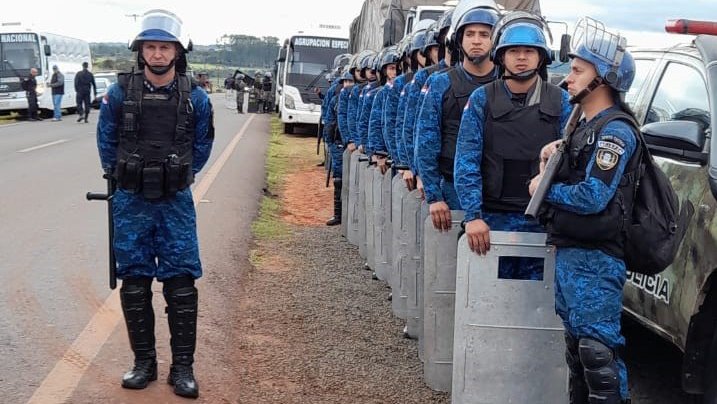
ARMED POLICE PREPARE TO EVICT THE COMMUNITY AT HUGUA POI IN JULY 2022. CODEHUPY
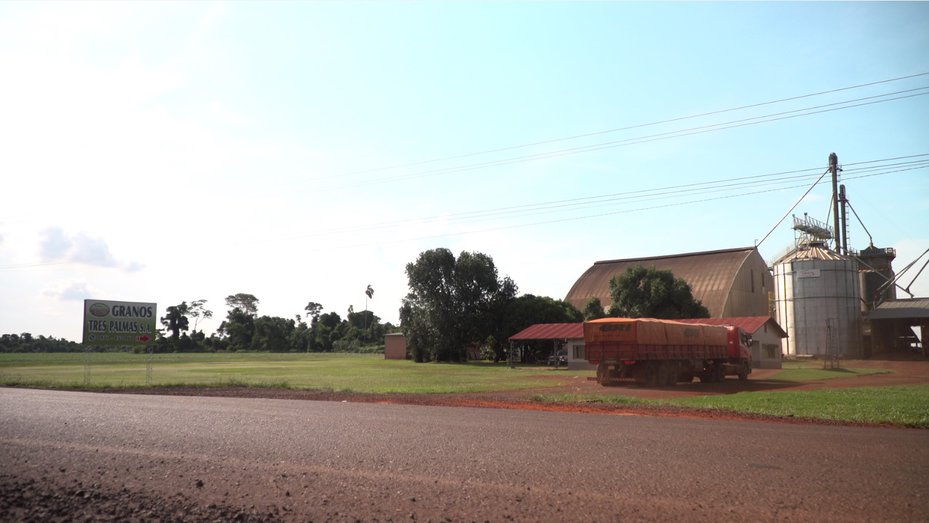
TRUCKS LEAVING THE SOY SILO OF FARMING COOPERATIVE TRES PALMAS S/A. GLOBAL WITNESS
Tres Palmas operates a silo 5km
from Hugua Po’i, where they store soy harvested from the disputed land. From
there, soy is trucked directly to ADM’s port facilities south of Asuncion, Port
Sara.
Tres Palmas argue that the evictions were authorised through
the civil courts on the basis of a land title that has been in their possession
for the more than fifty years. The Hugua Po’i land claim is not a case of
Indigenous peoples seeking land restitution, they argue, but rather local
politicians weaponizing Indigenous rights to extort money from private
landowners.
The Loma Piro’y community
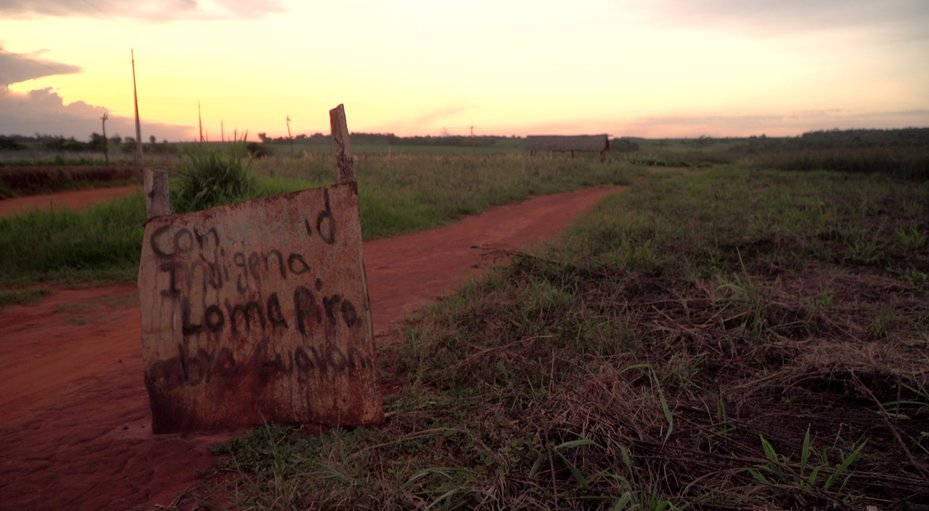
A SIGN AT THE ENTRANCE TO THE LOMA PIRO’Y COMMUNITY, WHICH HAS BEEN VIOLENTLY ATTACKED BY LOCAL SOY PRODUCERS SIX TIMES. GLOBAL WITNESS
For the Mbya Guaraní, the land
that lies between the Acaray and Monday rivers in eastern Paraguay is known as
“Mbae Vera”: “the land that shines”. Though the forest that once cloaked
the region is largely gone, its glades and forest trails remain woven
through Mbya mythology.
“For us, it’s land that
gives life to all humanity,” says Mario Rivarola, leader of the Organizacion
Nacional de Aborigines Independientes. “Without land there is no life. We come
from earth, and we become part of the earth again.”
Today, instead of trees, the
“Mbae Vera” is carpeted with vast soy monocultures. Mbya leaders warn that this
dispossession threatens the total disintegration of their culture and community
ties. Hugua Po’i represents a determined effort to preserve
their connection with this ancestal land.
Just 12km north of Hugua Po’i,
another Mbya community is fighting to retain this link with their traditional
territory. Named Loma Piro’y, the community has also suffered serious human
rights abuses at the hands of individuals reportedly acting for local soy
producers.
In December 2020, a group of men
armed with shotguns and electric batons marched into Loma Piro’y. Opening fire
over people’s heads, they ordered them to abandon the land or risk being shot. A
report to the Prosecutor’s Office made by two Loma Piro’y residents describes what happened next. “They
beat up some of our neighbours, fracturing people’s arms, and chased us out.”
Then they burnt the community’s houses, church and
school, and robbed their telephones, their food and their animals.
Despite the violence and death
threats, the community clung on. But the police apparently did nothing, and
three months later, Loma Piro’y suffered another assault. This time, nine
residents were seriously injured.
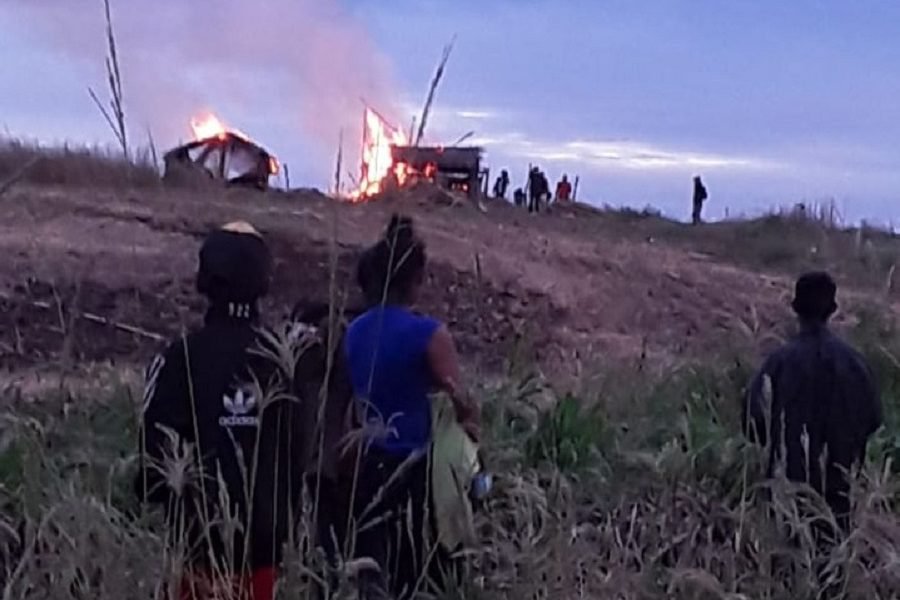
HOMES OF THE MBYA GUARANI COMMUNITY AT LOMA PIRO’Y BEING BURNED DOWN BY SOY FARMERS, MARCH 2021. SUPPLIED BY COMMUNITY MEMBER.
“My cousin was struck by a
machete here,” says Dominga Coronel, the community leader, pointing at the top
of her head. “His brother was cut on his face, and four or five women were hit
on their arms by clubs.” This time, the authorities did take action, and several
local landowners and soy farmers were charged with coercion.
These attacks, too, were driven by a fundamental clash of
worldviews. In both conflicts, the landowners are descendants of uprooted
Mennonite communities who came to Paraguay with little, seeking to sow a life in the fertile soil. In the case of Loma Piro’y, both the
Mennonites and the Mbya Guarani claim possession of land that was left to
Indigenous people by German pastors in the 1980s. Through subsequent decades,
it was gradually taken over by large-scale commercial farmers.
“Our grandfathers lived in this, our ancestral territory,
here they had their opy,” Armado Portillo, a Loma Piro’y resident, told the
local publication Joaju. “This was a forested place, and now there are
no forests, only soy.”
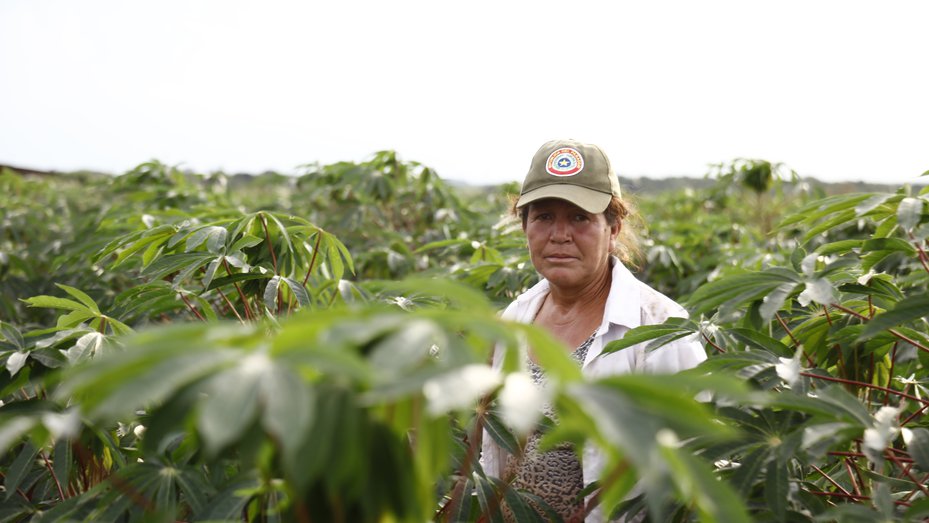
DOMINGA CORONEL, RESIDENT OF LOMA PIRO’Y, IS FIGHTING TO RETAIN THEIR LAND AND PREVENT HER INDIGENOUS COMMUNITY BECOMING DESTITUTE. GLOBAL WITNESS
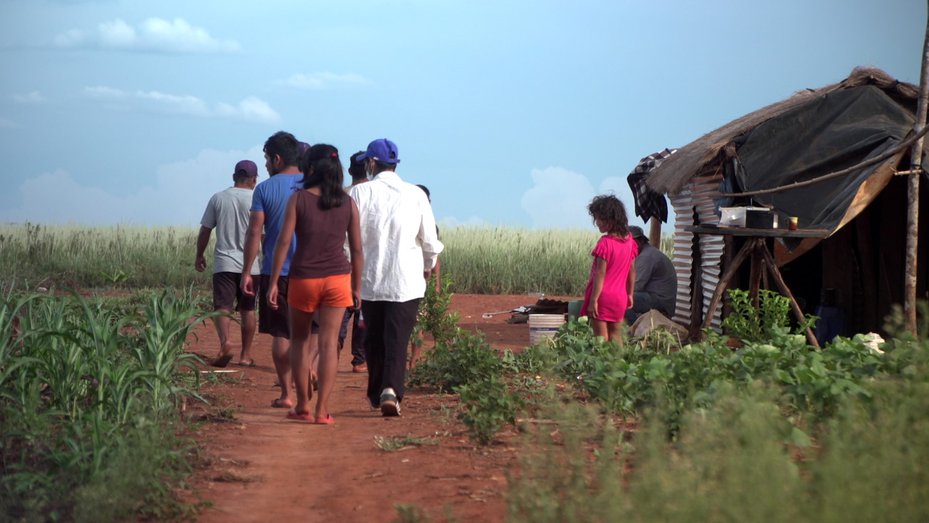
THE INDIGENOUS MBYA GUARANI LOMA PIRO’Y ARE SURROUNDED BY SOY PLANTATIONS, WHOSE OWNERS HAVE VIOLENTLY ATTACKED THEM SIX TIMES. GLOBAL WITNESS
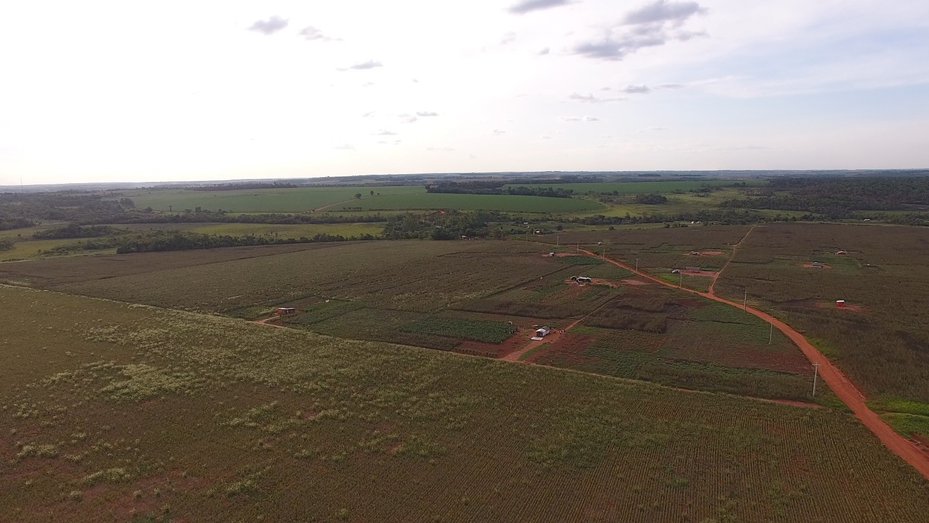
THE INDIGENOUS COMMUNITY AT LOMA PIRO’Y, IS SURROUNDED BY COMMERCIAL FARMS. GLOBAL WITNESS
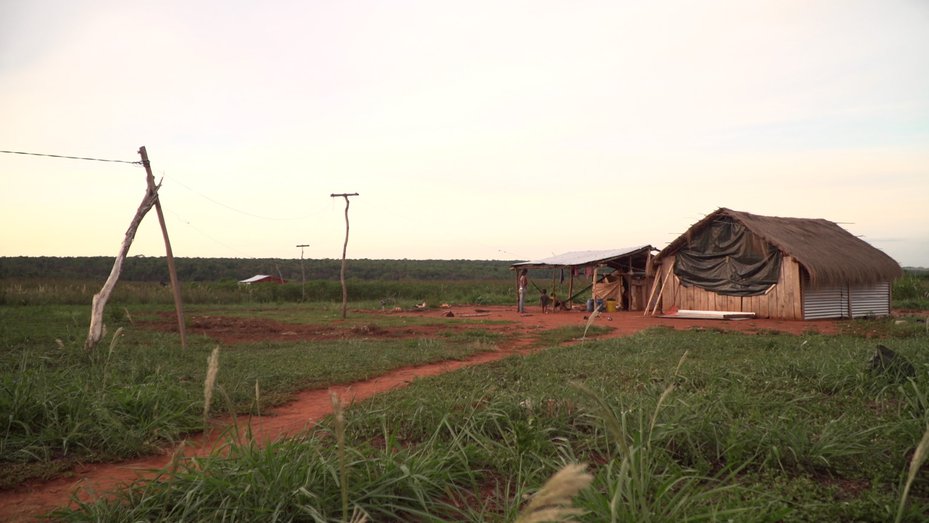
ONE OF THE HOMES OF THE INDIGENOUS MBYA GUARANI COMMUNITY AT LOMA PIRO’Y. GLOBAL WITNESS
Soy produced on land claimed by the Loma Piro’y community is
harvested and delivered to a nearby silo owned by a firm called Agro
Panambi.
Cargill has sourced from AgroPanambi, Global Witness’s research
suggests. Agro Panambi did not respond to Global Witness’s request for
comment.
Neither ADM nor Cargill denied sourcing from Tres Palmas and
Agro Panambi respectively. Both US firms said they had initiated investigations
into the allegations of human rights abuses and violations of their policies.
Defending Indigenous Rights in Paraguay: A Risky Business
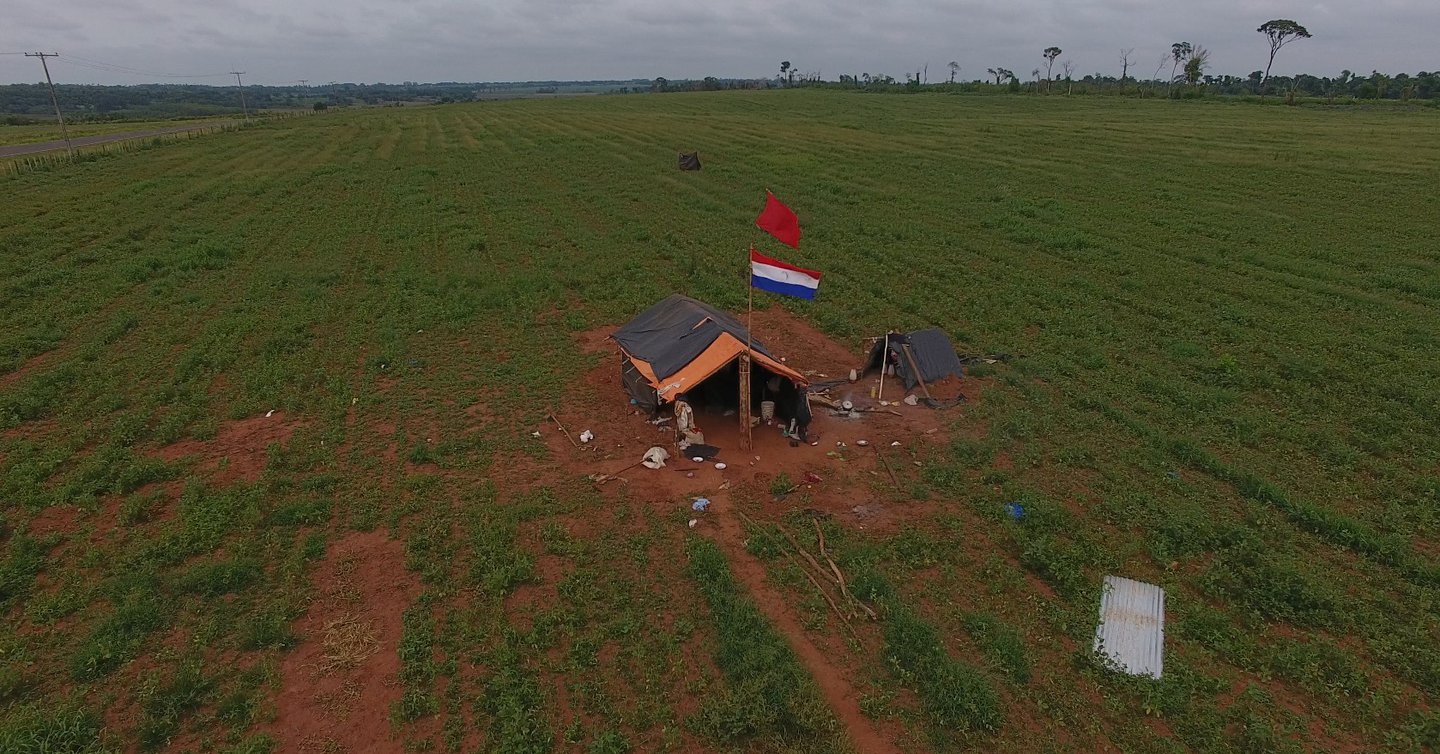
A HOME IN THE HUGUA PO’I COMMUNITY IS COMPLETELY SURROUNDED BY SOY. GLOBAL WITNESS
The evictions of Hugua Po’i, Ka’a Poty and Cerrito – plus
the dozen more documented by rights groups in 2021 alone – occurred despite the
clear Indigenous land rights enshrined in Paraguayan law.
These national protections are amplified in various international agreements
which Paraguay has ratified, such as Convention 169 of the International Labour
Organisation, and the UN Declaration of the Rights of Indigenous people.
The recent wave of forced evictions is not the first time
the Paraguayan government has been accused of violating Indigenous
rights, however. Since 2005, the Inter-American Court of Human Rights has issued three rulings condemning abuses. In
one case, the Court specifically emphasised that the fact land is in private
hands is not sufficient justification to deny a community’s right to territorial restitution.
This failure to uphold
Indigenous land rights reflects a deep rot in the Paraguayan justice system,
defenders argue. Juan Rivarola, a lawyer with the human rights group CODEHUPY,
says that judges and prosecutors are aware that ruling against powerful
agribusiness interests could destroy their careers. “They tell me, ‘I have to
be flexible on this one, or I could be dismissed’,” he says. “This is very
serious because it affects the independence of the judiciary.”
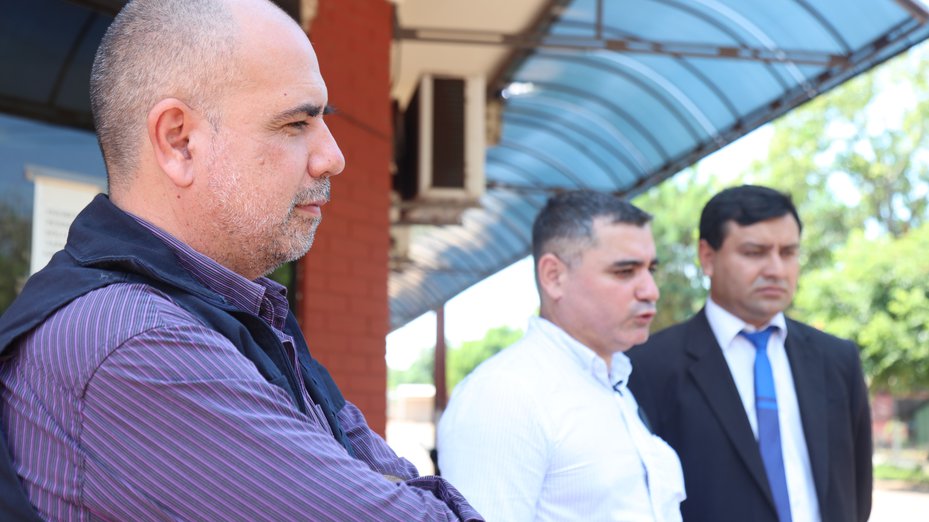
LAWYERS AFFILIATED WITH THE HUMAN RIGHTS GROUP CODEHUPY OUTSIDE CAAGUAZU PUBLIC PROSECUTOR’S OFFICE, 3 MARCH 2022. FROM LEFT TO RIGHT: JUAN RIVAROLA, ABEL ARECO, AND FULGENCIO TORRES. GLOBAL WITNESS
One
official who experienced this first-hand is Eresmilda Román Paíva, a judge in
the city of Itakyry, located
20km north of Ka’a Poty in Alto Paraná. Román began work as a magistrate in 1995.
Twenty years later, a case landed on her desk that would change her life
forever.
“In 2015, an Indigenous chief brought a lawsuit to my
court,” Román begins. This leader was having trouble with a Brazilian farmer
who was cultivating soy on his community’s land. The farmer had rented land
from the leader’s predecessor, but the new leader felt the arrangement was
exploitative and wanted the land back.
It didn’t take Román long to reach a conclusion.
Paraguay’s constitution prohibits the renting of Indigenous land, and
the arrangement hadn’t been approved by Paraguay’s Indigenous Institute. “I
annulled the contract,” she says, "and returned the land to the
community."
Before issuing her final ruling, however, she began
receiving threats from the soy farmer’s lawyer, Nelson Alcides Mora. “He even
put it in writing,” Román says, showing a letter, signed by Alcides, in which
he warns that “magistrates who act in a similar fashion end up in a Jury for
the Prosecution of Magistrates.”
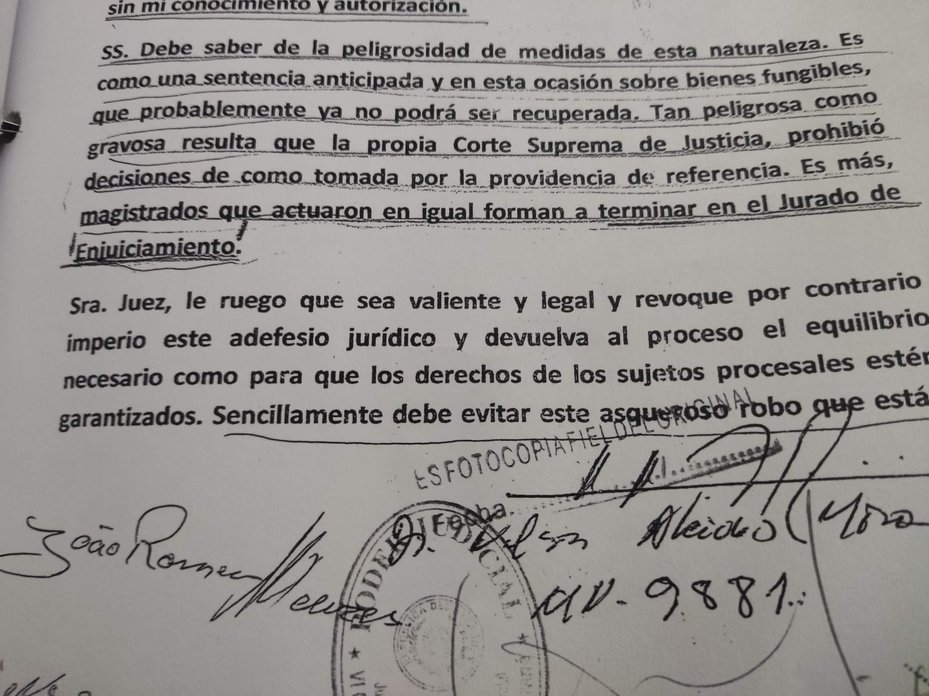
EXCERPT FROM A LETTER FROM A SOY FARMER’S LAWYER TO JUDGE ERESMILDA ROMÁN PAIVA, THREATENING TO DENOUNCE HER TO BEFORE A ‘JURY FOR THE PROSECUTION OF MAGISTRATES’. SUPPLIED BY ERESMILDA ROMÁN PAÍVA
Román, though, takes the responsibility of her position
seriously. She refused to bow to the lawyer’s pressure and ordered that the
land be returned to the community.
It was then that her problems really began. First,
Alcides appealed her ruling and succeeded in getting it overturned. Then he
acted on his threat, denouncing Román before a professional tribunal.
Simultaneously, he pursued a defamatory media campaign, claiming she’d
corruptly pocketed money by stealing his client’s soy, she reports.
Through the next seven years, Roman awaited a verdict on the
case. Every day, the threat hung over her: the arrival of a letter or phone
call that would banish her from her profession, destroying the career she’d
spent almost three decades building.
In December 2021, the rights group CODEHUPY intervened in the case,
alerting the UN Special Rapporteur on the Independence of Judges and Lawyers
and presenting an Amicus Curiae before the Paraguayan courts. Eventually, in
October 2022, the pressure bore fruit, and the case against Eresmilda was
finally dismissed. “It causes psychological damage to be left
waiting so long," Román says. “I always feel it here, like a Sword of
Damocles, a blade close to the top of my head that doesn’t allow me to move.”
Our investigation
reveals how millions of consumers across Europe are likely contributing to the
forced eviction, poisoning, repression, and criminalisation of Indigenous and
campesino communities in Paraguay.
By combining
shipping data with insights from insiders across the soy, meat, and animal feed
industries, Global Witness traced the connections between the conflicts
documented in this report and European companies. First, we
tracked the flow of soy from the plantations producers engaged in conflict with
Indigenous communities to the silos and port facilities of ADM and Cargill. We
then charted its journey across the Atlantic, to feed firms, meat producers,
and finally the retailers and restaurants who sell products containing
Paraguayan soy to consumers across Europe.
Millions of consumers across Europe are likely contributing to the forced eviction, poisoning, repression, and criminalisation of Indigenous and campesino communities in Paraguay.
Europe driving demand
Europe imported 34.3 million metric tonnes of soy in 2019,
including around two-thirds from South America.
Greenpeace research indicates that the same year Europe mobilised nearly 12 million hectares of land abroad to meet its demand for soy for animal fodder.
The continent plays an outsized role as a source of demand
for Paraguayan soy, and for years the
European Union (EU) has been Paraguay’s number one export market.
Soy
grown in Paraguay enters Europe in two main ways, directly and indirectly. The
majority, around 1.1m tonnes in 2019, is imported with Paraguay as its recorded
origin, principally as soymeal, a course flour produced by crushing soy beans.
Within Europe, Poland, the UK, and Denmark are the biggest
buyers of soymeal directly from Paraguay, with Italy also playing a major role
in some years.
In 2021, UN COMTRADE reports that Poland imported just under 372,000 tonnes of
Paraguayan soymeal, the UK 290,000 tonnes and Denmark 70,000 tonnes.
However, the actual volumes of Paraguayan soy imports into
Europe are likely far higher, and its end-destinations and use within Europe
more nuanced.
Beyond direct imports, in 2019, for example, a further 0.7
million tonnes was likely imported into Europe mixed into the 7.7 million
tonnes of soymeal Argentina supplied the continent, as over 3.3 million tonnes of soybeans grown and harvested in Paraguay were processed in Argentina’s vast
crushing industry, and then reexported as Argentinian soymeal.
As such, in 2019/2020 Europe likely absorbed about 1.8
million metric tonnes of Paraguayan soy – over 5.2% of imports – significantly higher than Paraguay’s roughly 3% contribution to global soy production.
Europe has been a
key driver of soy expansion in Paraguay, with around 615,000 hectares of Paraguayan land occupied to produce soy for the continent – an area four times the size of Greater
London, or nearly four times the area of Paris, Berlin, Brussels and Rome
combined.
Europe has been a key driver of soy expansion in Paraguay, with around 615,000 hectares of Paraguayan land occupied to produce soy for the continent – an area four times the size of Greater London, or nearly four times the area of Paris, Berlin, Brussels and Rome combined.
Additionally, within Europe, the UK is a particularly big
source of demand for Paraguayan soy, which contributes a far higher proportion
of the UK’s overall supply than direct trade suggests.
Data provided to the Agricultural Industries Confederation
(AIC) by key traders including ADM, Cefetra, and Cargill, which includes
indirect imports via European member states, indicates that the UK actually
imported
375,215 tonnes of Paraguayan soybean meal equivalent in 2020, and 371,000 tonnes in
2019, making up 15.6% and 16% of soy for animal feed imported into the UK in
those respective years.
The UK’s huge apparent use of Paraguayan soy is driven by
demand for the chicken sector, and likely to a significant degree by the UK’s
biggest chicken firm, 2 Sisters.
Charting secretive shipments
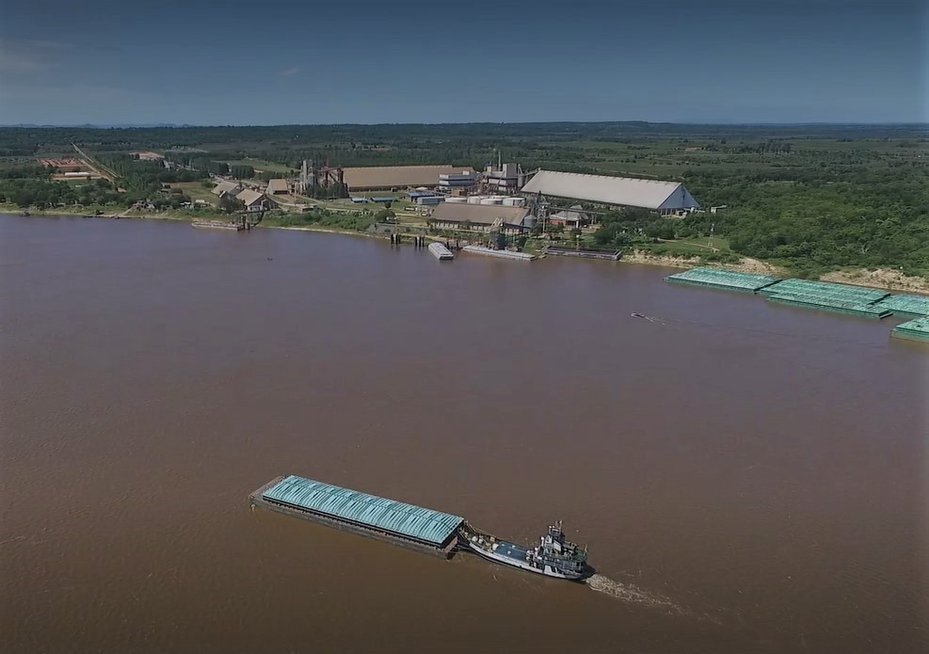
A SOY BARGE HEADS UPSTREAM PAST THE CAIASA SOY PORT BUNGE SHARES WITH OTHER TRADERS ON THE RIVER PARAGUAY, SOUTH OF ASUNCION. GLOBAL WITNESS
Paraguayan soy’s precise routes into European supply chains
are veiled behind secretive transshipments at mammoth transit terminals in
third countries, principally in Argentina. Most available trade data does not
illuminate who ships what to whom, where or when.
But our research has pierced that veil.
As a land-locked country, almost all Paraguay’s soy harvest
leaves the country by river.
Growth in soy exports has propelled rapid development in the
country’s fluvial infrastructure: in the last 30 years, its fleet has grown fifty-fold, from 100 to 5,000 ships.
Such development has made Paraguay “the undisputed leader in river navigation
in Latin America, and the third in the world, after the US and China.”
By 2016, Paraguay had 26 river ports dedicated exclusively to moving soy: 16 on the banks of the Paraguay river, and ten on the banks of
the Paraná river. The biggest concentration looms over the Paraguay as it skirts the west of
Asuncion. Cargill (Port Union), ADM (Port Sara), and Russian giant Sodrugestvo
(SARCOM) all operate private ports in this area, while a huge processing plant
and port named CAIASA is shared between US giant Bunge, French trader Louis
Dreyfus Company, and COPAGRA, the Paraguayan subsidiary of Argentinean
agribusiness behemoth AGD.
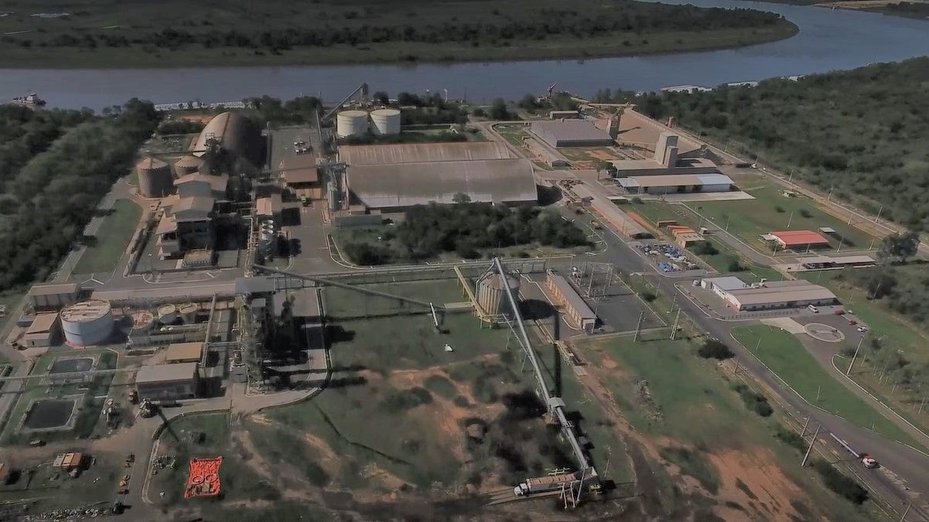
ADM’S PORT SARA, 40KM SOUTH OF PARAGUAY’S CAPITAL CITY ASUNCION, FROM WHERE THE COMPANY BARGES SOYBEANS AND SOYBEAN MEAL FOR EXPORT. GLOBAL WITNESS
At these and other ports, soy is loaded onto barges for the
long journey downriver. Their destination is usually the Argentine city of
Rosario, the biggest soy export hub in the world, where ports and processing
plants line 70km of riverbank.
Here, the commodity traders operate ports for transshipping
Paraguayan soymeal: ADM has a facility named Muelle El Tránsito, Cargill has Muelle Quebracho, and Bunge and COPAGRA/AGD share a site called Terminal Six. Further downriver, ADM also operates a transshipment terminal in Nueva Palmira,
Uruguay.
In Rosario, whole Paraguayan soybeans are crushed and
reexported as Argentinean soymeal, meaning
millions of tonnes of Paraguayan soybeans disappear annually into Argentina’s vast soymeal crush.
Paraguayan soymeal, meanwhile, is transferred at the traders’ transshipment
ports onto the huge bulk carriers which deliver it to buyers across the globe –
with Europe as the principal destination.
Our investigation tracked the journey of Paraguayan soymeal from the transshipment facilities of ADM, Cargill and Bunge to animal feed firms that supply two of Europe’s biggest meat companies: 2 Sisters, in the UK; and Danish Crown, in Denmark.
2 Sisters was founded in 1993 by Ranjit Singh Boparan, a butcher’s assistant who left school at 16. Since then, it has grown into the
UK’s biggest chicken manufacturer, processing more than ten million birds a week and supplying a
third of all the chicken products consumed in the country.
Paraguay is a key source of soy for 2 Sisters’ chicken feed,
following the firm’s own soy sourcing policy, which states: “Over many years
2SFG experience [sic] has been that Brazilian / Paraguayan soybean meal has
been of superior quality to alternative sources.”
This policy also states that all the soy in 2 Sisters’
chicken feed is supplied by three traders that dominate the flow of Paraguayan soy into Europe. These firms
are Cargill and ADM (the biggest and second biggest exporters of soy from
Paraguay respectively), and Cefetra Group, a firm with UK operations, that is
in turn owned by BayWa Group, a German headquartered agri-commodity, energy and
building materials giant. Cefetra has reported that 45% of its expected 2020 UK/Ireland soybean equivalent imports were of Paraguayan origin.
Our investigation uncovered multiple shipments of Paraguayan
soy to the UK by ADM, Cargill, and Bunge, including Bunge shipments to Cefetra.
The Paraguayan soy in these shipments is purchased by UK animal feed
manufacturers and used in the production of chickens which are slaughtered and
sold by 2 Sisters.
These feed firms include 2Agriculture – a sister company of
2 Sisters also owned by the Boparan family
– and ABN, a feed firm owned by AB Agri, part of Associated British Foods.
Smaller volumes also likely flow to 2 Sisters via ForFarmers UK, a subsidiary
of one of Europe’s largest animal feed conglomerates, ForFarmers BV. 2 Agriculture and ForFarmers UK recently announced plans to merge operations,
giving ForFarmers a bigger share of the UK chicken market via 2 Sisters
contracts.
With the exception of 2Agriculture, which did not respond to
our findings, none of these feed firms denied using Paraguayan soy from ADM,
Cargill and Bunge (via Cefetra) when supplying 2 Sisters’ poultry feed.
Our investigation uncovered two specific routes by which
ADM’s Paraguayan soymeal reaches 2 Sisters’ chickens: one via Portbury, in
south-west England; and one via Seaforth, next to Liverpool in north-west
England.
ADM: The Portbury Nexus
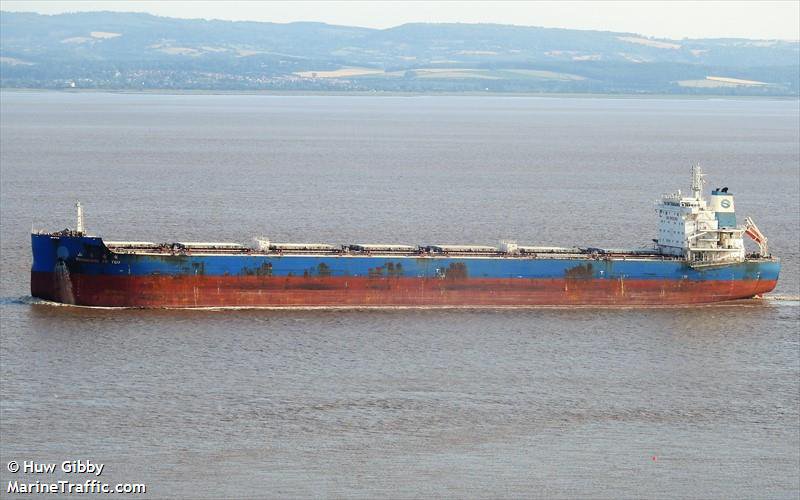
THE SHANDONG FU YOU OFF PORTISHEAD, BRISTOL, ENGLAND, ON 16 JULY 2022, 6 DAYS AFTER DOCKING IN PORTBURY DOCK TO OFFLOAD 24,200 TONNES OF PARAGUAYAN SOYMEAL FOR ADM. HUW GIBBY
On 10 July 2022, a 200-metre-long merchant ship named the
Shandong Fu You nosed into England’s Royal Portbury Docks. On board were 24,200
tonnes of Paraguayan soymeal, loaded three weeks earlier at ADM’s transshipment
port in Nueva Palmira.
The previous year, in 2021, two other ships had plied the
same route: the Mandarin Phoenix delivered 10,000 tonnes of soymeal from ADM’s
El Transito port to Portbury in December;
and the Amis Unicorn delivered 22,000 tonnes via the same ADM port in June.
From Portbury, ADM’s Paraguayan soymeal is trucked to a pair of feed mills operated by ABN in the pretty Devonshire villages of Uffculme and
Cullumpton, where it is mixed with other inputs like wheat and corn to produce
chicken feed for 2 Sisters.
This feed is trucked along narrow country lanes to the
region’s cluster of intensive poultry units. The flagship of these is
Swanhams, a chicken mega-farm operated by Hook 2
Sisters, a joint venture between 2 Sisters and the hatchery PD Hook. From
the front gate, Swanhams Poultry Unit is an inconspicuous series of six wooden
barns. A closer look, however, reveals that the wooden façade is maintained
only at the front, and that the corrugated metal structures stretch back for
over a hundred metres. Within each of them are
60,000 chickens, with the site
as a whole holding 350,000 at a time.
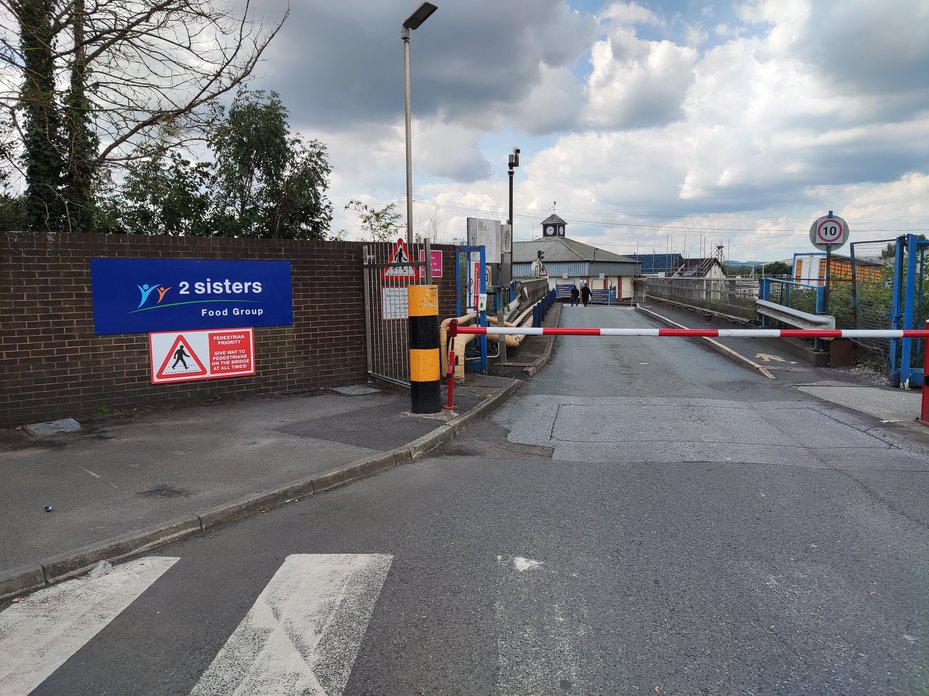
2 SISTERS’ PROCESSING PLANT AT WILLAND, IN THE UK, WHERE ONE MILLION BIRDS ARE SLAUGHTERED EVERY WEEK. GLOBAL WITNESS
These chickens spend five to six weeks in the
intensive poultry units before they’re ready for slaughter. Collected by “catching gangs”, they are stuffed into crates and stacked onto trucks for transport to 2
Sisters’ sprawling processing plant in the village of Willand, where a million chickens are killed a week.
Neither ADM, ABN, nor 2 Sisters refuted these
findings when put to them.
ADM: The Seaforth Nexus
Further up the English coast, 2 Sisters also
sources Paraguayan soymeal from ADM facilities in the port of Seaforth, near
Liverpool. So far in 2022, ADM has shipped at least 37,615 tonnes of Paraguayan
soymeal to Seaforth in two consignments from its transshipment terminal in
Nueva Palmira, Uruguay.
From Seaforth, ADM’s Paraguayan soymeal is
trucked to a nearby feed facility in Llay, North Wales operated by
2Agriculture, the sister firm of 2 Sisters.
From the 2Agriculture mill, chicken feed is
delivered to Hook 2 Sisters’ many sites in the area, including Treuddyn Poultry Farm and the firm’s cluster of intensive
poultry units in north-west Wales. Chickens reared at these sites are slaughtered in 2
Sisters’ flagship processing plant at Sandycroft, near Deeside, which also
kills a million birds a week.
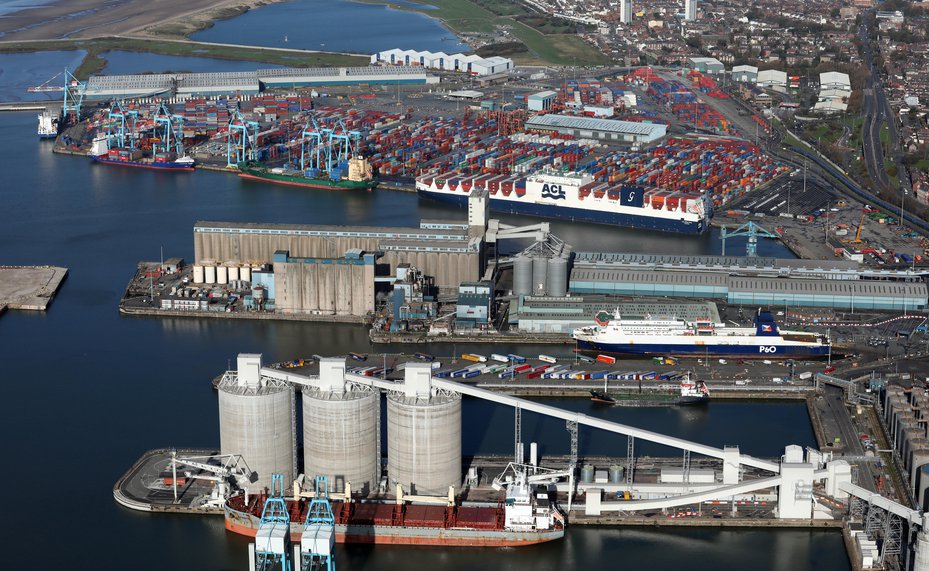
SEAFORTH DOCKS, LIVERPOOL, WHERE ADM AND CARGILL HAVE RECEIVED SHIPMENTS OF PARAGUAYAN SOY ULTIMATELY USED IN CHICKEN FEED. A.P.S. (UK)/ALAMY STOCK PHOTO
Cargill
Cargill also ships Paraguayan soymeal to
Seaforth, via its Rosario transshipment hub of Muelle Quebracho. In 2021,
Cargill shipped almost 60,000 tonnes of Paraguayan soymeal in three
consignments to its facilities in Seaforth. As with ADM, Cargill’s soy, including that imported from Paraguay, is sold to
manufacturers of animal feed used in 2 Sisters’ chicken production, including
2Agriculture and ABN.
None of the companies that responded to our
findings refuted these supply chain links when put to them. ABN told us it uses
Cargill’s ‘Triple S’ certification scheme.
A substantial portion of Cargill’s UK soy
imports also feed the US giant’s own integrated chicken operation, Avara Foods,
a joint enterprise with the British producer Faccenda Foods. A recent
investigation by Unearthed found that soy from Cargill’s Seaforth plant is
trucked first to the firm’s poultry feed mills in Hereford and Banbury, and
then on to Avara chicken farms.
Bunge
Finally, Bunge also ships Paraguayan soymeal
to the UK. So far in 2022, the US giant has delivered three consignments
amounting to 18,260 tonnes to the Belfast facilities of feed ingredients trader
Cefetra. Cefetra in turn sells soy, including Paraguayan soy supplied by Bunge and
others, to firms fulfilling 2 Sisters’ animal feed requirements, such as ABN
and 2Agriculture. None of these companies refuted these supply links when put to them.
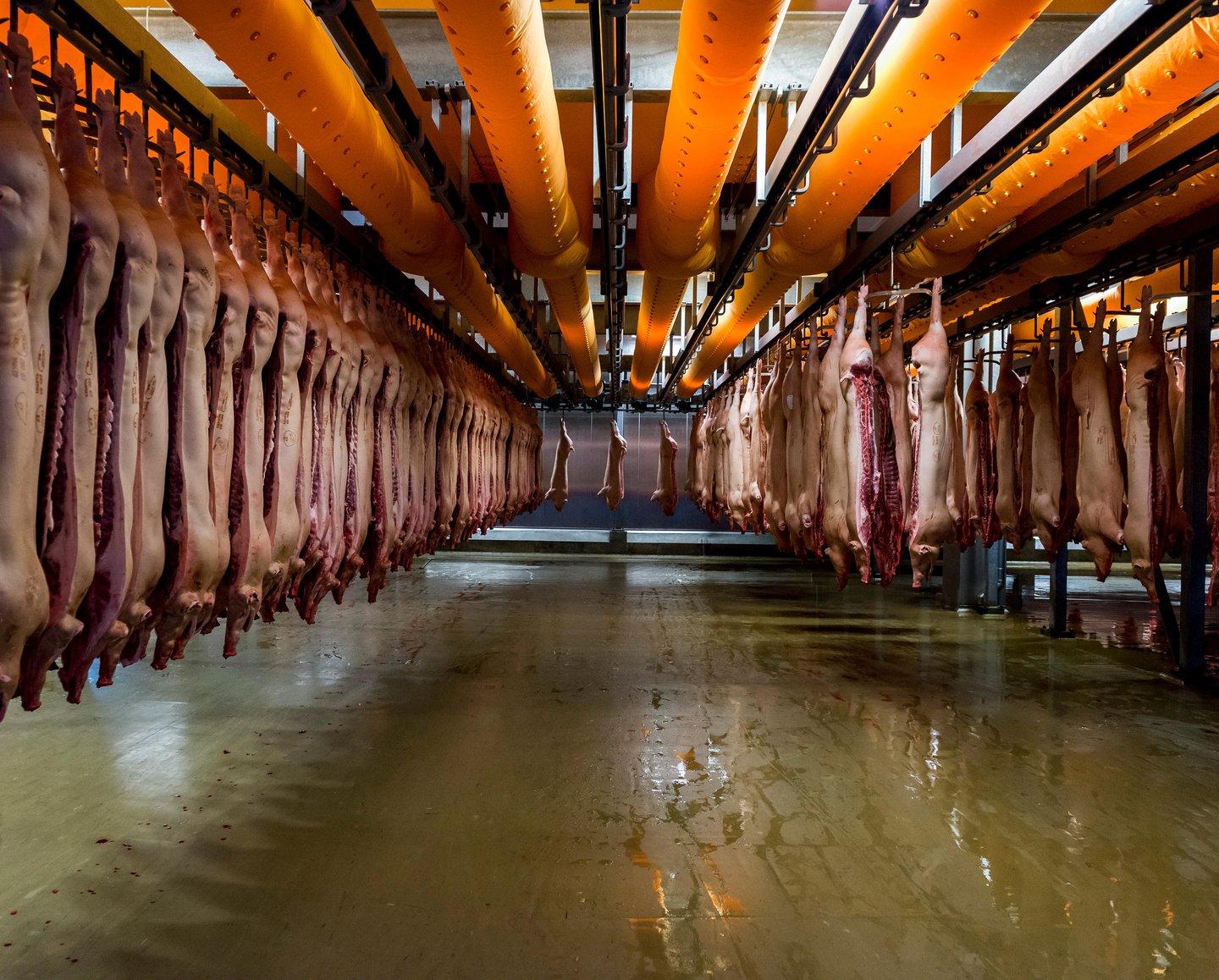
PIG CARCASSES HANGING IN DANISH CROWN’S HORSENS PROCESSING PLANT, DENMARK. ALASTAIR PHILIP WIPER-VIEW / ALAMY STOCK PHOTO
Paraguayan soy reaches Danish Crown’s intensive pig farms via
another Nordic agribusiness giant, Danish Agro. Danish Agro is one of Europe’s
ten biggest animal feed firms, handling around
40% of Denmark’s soy imports and producing 2.8m tonnes of feed a year. ADM is its number one soy
supplier.
We
identified two shipments of Paraguayan soy from ADM’s El Transito port in
Rosario to warehousing facilities Danish Agro leases from Associated
Danish Ports (ADP) in
Fredericia, a port town on Denmark’s
Jutland peninsula. Totalling 48,000 tonnes, the shipments arrived in June and
December 2021: 20,000 tonnes aboard the Amis Unicorn, and 28,000 on the
Mandarin Phoenix.
From the docks, the soy is trucked to Danish Agro’s feed factories.
There, soy may be mixed with other inputs such as barley and wheat to make pig
feed, which is delivered to farms rearing pigs that supply Danish Crown’s network of slaughterhouses.
Danish Agro said it strongly disapproves
of human rights and land rights violations, which were contrary to its
requirements, and that it had contacted its main soy supplier, ADM,
and was awaiting the results of an investigation ADM was undertaking.
These slaughterhouses are also enormous sites; the firm’s
biggest is located in Horsens and kills 100,000 pigs a week, with meat-packing done in the same site.
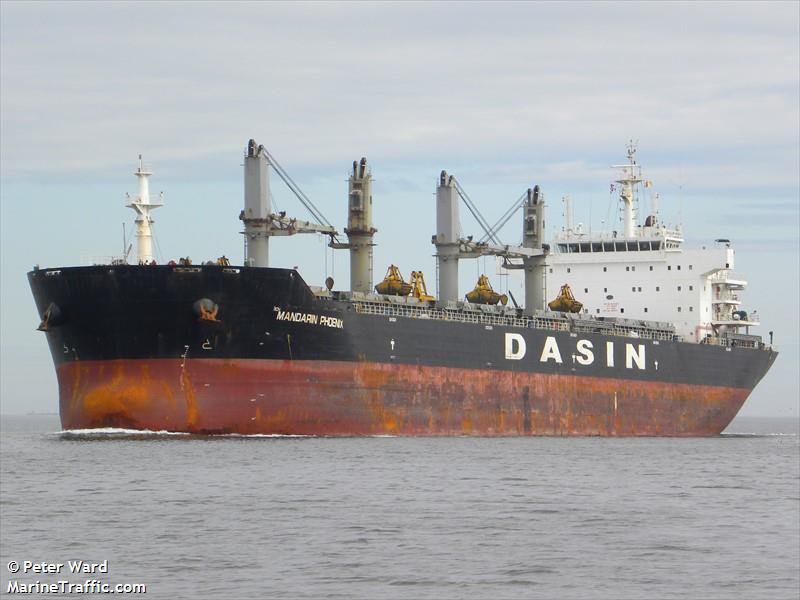
THE MANDARIN PHOENIX WHICH DELIVERED 28,000 TONNES OF ADM'S PARAGUAYAN SOY TO DANISH AGRO IN FREDERICIA, DENMARK, ON 22 DECEMBER 2021. PETER WARD
Danish Agro’s principal rival in Denmark is DLG, another of
Europe’s biggest animal feed firms which imports 900,000 tonnes of soybean meal annually. Cargill shipped 11,500 tonnes of
Paraguayan soymeal to DLG in 2022, although DLG claimed it was not used for pig
feed so did not supply Danish Crown.
We also tracked a shipment of
30,000 tonnes of Paraguayan soy
from ADM on the Apogee Endeavour, which
unloaded on 22 April 2021
alongside facilities in Aarhus
bulk terminal that
multiple sources indicate are owned or controlled by DLG. However, while
DLG acknowledged the shipment occurred, it denied the soy
was delivered to it or to a facility that it owns or operates.
Like Danish Crown, both Danish Agro and DLG are also
cooperatives owned by Danish pig farmers, many of which may also be
owner-members of Danish Crown. Both feed firms have agreements with Danish
Crown under which data on animal feed volumes and ingredients and pig sales to
Danish Crown are monitored and shared.
2 Sisters’ chicken and Danish Crown Group’s Danish-originated
pork are ubiquitous on high streets, supermarkets shelves, and in restaurant
chains continent-wide, and consumed by tens of millions of European consumers
every day.
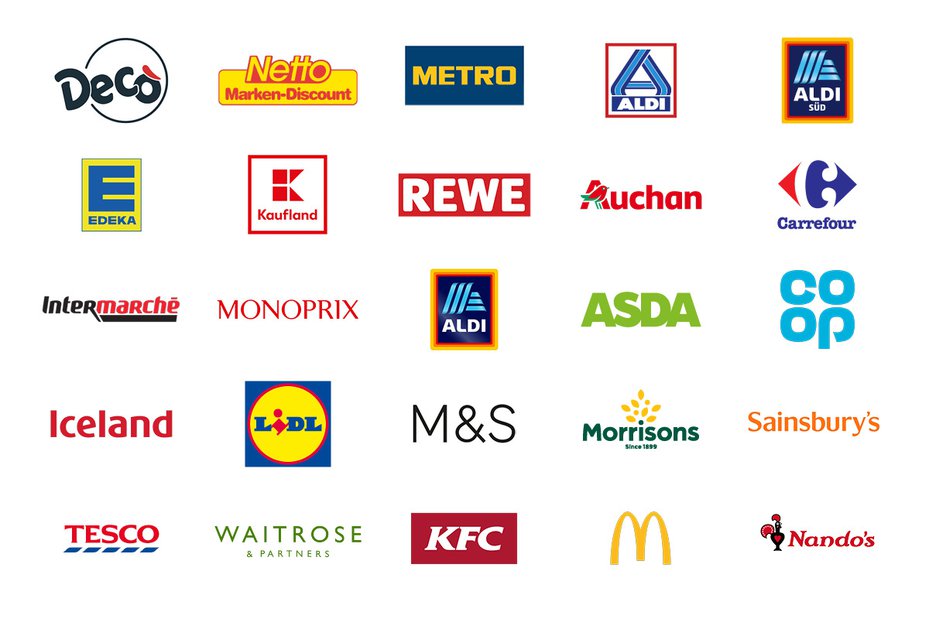
2 SISTERS’ CHICKEN AND DANISH CROWN GROUP’S PORK ARE UBIQUITOUS ON HIGH STREETS; AT LEAST 26 MAJOR EUROPEAN RETAILERS SOURCE FROM THEM.
We identified three fast food chains using 2 Sisters’ chicken
in the UK, at least 10 UK retailers that sell or
until recently sold 2 Sisters and Danish Crown products, or using their meat,
and a further 13 major retailers across France, Germany and Italy selling
Danish Crown pork.
2 Sisters claims to supply Kentucky Fried Chicken (KFC) in
the UK.
Nando’s UK and Ireland and McDonald’s are both also 2 Sisters customers.
2 Sisters names UK retailers Aldi, Asda, Co-op, Lidl, Marks
& Spencer (M&S), Morrison's, Sainsbury's,
Tesco, and Waitrose among its customers in the UK, although
Waitrose told us it no longer sources from the firm. Frozen-food giant Iceland is also reportedly a customer.
These retailers
use 2 Sisters for their own-brand products. Examples include Tesco’s ‘Willow Farms' line, and
M&S’ ‘GastroPub’ brand of ready cooked meals.

TESCO’S ‘WILLOW FARMS’ BRAND OF CHICKEN, AND MARKS AND SPENCER’S ‘GASTROPUB’ BRAND OF READY MEALS, BOTH PRODUCED BY 2 SISTERS.
All these UK
retailers also sell products manufactured by Danish Crown or subsidiaries of
the group.
Danish Crown’s
tinned meat division, named Tulip, is one of the company’s best known operations,
producing over 130 million cans of meat annually.
Tulip is licenced by the US consumer goods
company Hormel Foods to produce its world-famous SPAM® brand of luncheon
meat for the European market. SPAM® is
sold by many of the UK’s biggest retailers, including Sainsbury’s, Tesco, Asda, Morrisons, Co-op, Waitrose, and Iceland.
Some UK supermarkets also offer products manufactured by
Danish Crown’s Tulip facilities under the Tulip brand itself, including
Sainsbury’s and Tesco.
Sainsbury’s includes Tulip Food Company in Vejle, Denmark,
in its January 2022 tier 1 suppliers list. Its own-brand tins of ‘lean ham’ and ‘chopped pork and ham’ are made in Denmark with Danish pork, and the
retailer did not deny these were made by Danish Crown.
Lidl lists four Danish Crown entities, including two in Denmark
(one of which is a Tulip facility) in a 2022 list of its suppliers.
M&S has also sourced cooked and sliced pork for its own-brand
products from Danish Crown’s Tulip division, and
although the contract reportedly ended in 2019, M&S did not deny continuing
to source pork from Danish Crown when contacted.
Aldi UK is also supplied by Danish
Crown.
Tulip also markets a broad range of Pizza toppings, under the brand
‘Super Tops’. These are marketed by UK-based catering wholesalers that sell to
numerous independent pizza restaurants and manufacturers across the country.
Beyond the UK, Danish Crown products
and meat are also widely available to millions more consumers across mainland
Europe.
In France, Tulip brand tinned
meats, sausages, and ham are
available at Carrefour, Intermarché, Monoprix, and Auchan. In Germany, they are sold
in outlets of Edeka, REWE, NETTO, Kaufland, METRO, Aldi Nord, and Aldi Sud.
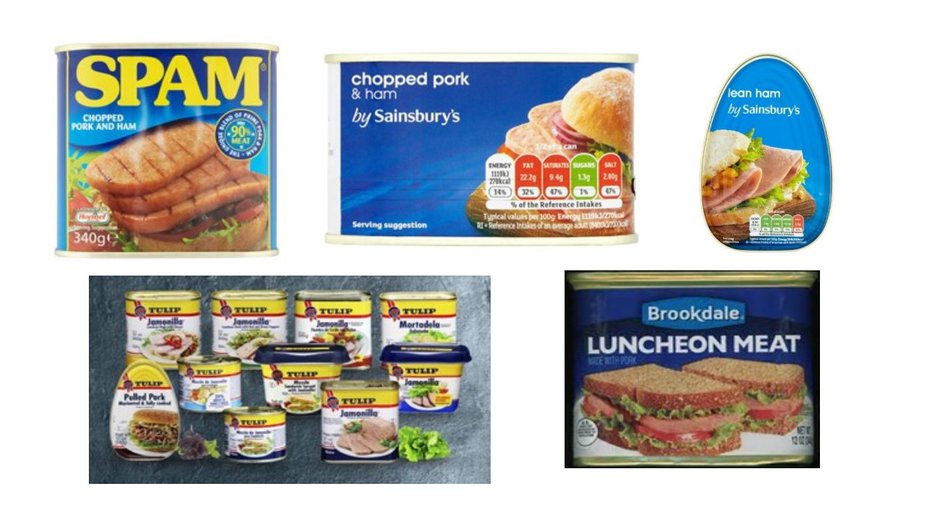
TINNED PORK PRODUCTS MANUFACTURED BY DANISH CROWN ARE UBIQUITOUS IN MAJOR SUPERMARKETS ACROSS EUROPE.
Tulip facilities also produce tinned pork luncheon meat
products under the ‘Brookdale’ brand, a trademark registered to Aldi Inc, a US subsidiary of Aldi Sud in Germany. Trade records indicate Danish Crown companies shipped thousands of tonnes of
Brookdale pork products from Denmark to the US from 2017-2022, likely amounting
to over 5 million cans over the period.
Danish Crown also offers two main brands of raw pork cuts: its generic raw pork line ‘Tender Pork’; and ‘Pure Pork’, a line of
antibiotic-free high animal welfare meat.
‘Pure Pork’ is offered as raw cuts by all 300 Decò supermarket outlets across Italy.
‘Pure Pork’ is also
used to manufacture the popular German ‘Reinert HerzensSACHE' brand of pork
products. Owned by
The Family Butchers, Germany’s second biggest sausage and ham producer, Reinert HerzensSACHE is sold by many
German supermarkets and many others across Europe.

DANISH CROWN'S 'PURE PORK' BRAND IS USED IN REINERT HERZENSSACHE PRODUCTS.
Soy embedded in Danish Crown’s Danish pork business also
reaches European consumers via Danish Crown subsidiary Sokołów, one of Poland’s
largest meat company, including under the ‘Sokoliki’ brand.
Sokołów products are mainly sold in
Poland, but are increasingly available in supermarkets across Europe, including
in the UK at Sainsbury’s, Tesco, Morrison’s, and Asda.
As this non-exhaustive overview shows, Europeans consuming
chicken or pork will almost certainly buy products manufactured by either 2
Sisters or Danish Crown – products that embed Paraguayan soy supplied by traders
linked to human rights harms in Paraguay.
Directly linked to the harms
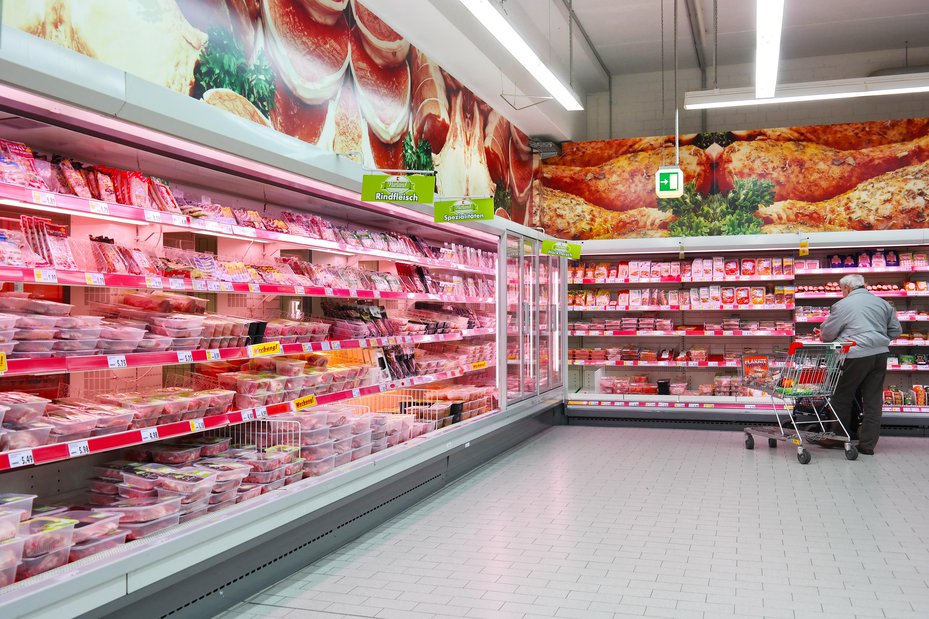
CONSUMERS RISK CONTRIBUTING TO HUMAN RIGHTS ABUSES IN PARAGUAY WHEN BUYING PORK AND CHICKEN SOLD BY DOZENS OF MAJOR EUROPEAN RETAILERS. RENÉ VAN DEN BERG / ALAMY STOCK PHOTO
Further,
where companies display negligence in assessing, identifying, preventing or
mitigating such human rights harms, these standards regard them as having
‘contributed to’ the harms - making them responsible for providing remedy to
affected communities.
Our
research suggests that all companies downstream of the big soy traders are at
least at structural risk of being directly linked to, if not clearly directly
linked to, the harms we uncovered in Paraguay. Many companies also display many
if not all the due diligence failings associated with contributing to the
abuses.
Other
than ADM – which claims its preliminary investigation, which it did not
indicate had consulted the victims, concludes its suppliers are not causing
abuse and no community lands overlap their farms – no other corporation named
in this report refuted this assessment when put to them.
Clearly,
no one has provided remedy to the Ava Guarani, Mbya Guarani, or campesino
communities impacted by industrial soy production in Paraguay, it appears.
Such factors suggest the entire sector is failing in its responsibilities under international human rights standards.
Organised opacity
The soy industry is overwhelmingly opaque.
A 2021 3Keel report covering soy embedded in products
offered by a collection of major retailers, displays the lack of transparency
in the sector all too clearly.
It found that, of the estimated 1.63 million tonnes of soy
embedded in meat products in the UK and Europe sold by the retailers in 2020,
only 38% had some kind of ‘no deforestation’ claim attached to it (62% had
none):
retailers could trace only 41% to a named soy trader, and 72% had either no evidence or insufficient evidence of the country of origin.
In researching this report Global Witness sent soy sourcing
surveys to over 30 animal feed, retailer, and consumer goods firms selling 2
Sisters and Danish Crown products across Europe, as well as to the two meat
firms themselves, requesting information on the volumes, origin, traceability,
and sustainability certification of their soy.
Most firms did not respond. Of the 15 that did, not one
single company was either willing or able to provide information detailed
enough to allow for meaningful analysis of the company’s sourcing of Paraguayan
soy. Nonetheless, many still proclaimed the sustainability policies they were
committed to or the industry initiatives they had signed up to.
A cascade of negligence
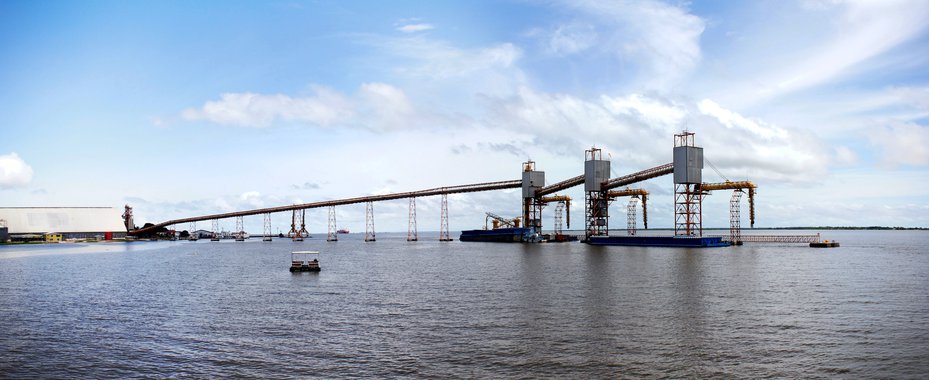
A CONVEYOR BELT FEEDING HOPPERS AT A SOY EXPORT TERMINAL OWNED BY CARGILL. TARCISIO SCHNAIDER / ISTOCK
The European industrial meat sector’s reliance on cheap soy
for animal feed has been a principal driver of human rights and environmental
harms across Latin America for years.
The big soy traders, including ADM, Cargill and Bunge, have
almost invariably been the central conduits of complicity in this long history
of harm.
Their purchases of soy tainted by human rights violations in
countries like Paraguay constitute serious and repeat failings under
international business and human rights standards.
The traders’ control of the highly opaque supply of soy to Europe means most if not all actors downstream of them in Europe’s protein value chain all too readily inherit their failings.
Through their own negligence, European corporate actors
downstream of the traders have for years also contributed to harms of the type
we documented in Paraguay.
This includes virtually all types of large actors involved
in the European meat industry: from the animal feed companies and the mega-farm
operators they supply, through the big chicken and pork processors, to the
big-brand retailers, fast food chains and consumer goods firms that market meat
products to millions of European consumers.
An age of unregulated ‘responsibility’
In light of numerous exposés of deforestation and human
rights abuses in soy supply chains, the industry has adopted a range of voluntary company polices, industry
initiatives, and certification schemes to help clean up their supply chains.
Yet these voluntary approaches have repeatedly failed to stem the flow of tainted soy embedded in cheap meat to the dining tables of European consumers.
In order to maintain industrial-scale volumes of soy,
companies have allowed pragmatism to trump principle at almost every turn.
The policies and practices of the companies involved in the
meat value chains of 2 Sisters and Danish Crown are just another case in hand.
Nearly all the European companies named in this report are
members of industry initiatives, or espouse policies purporting to ensure they
do not, or are working to ensure they will not, accept tainted soy.
Both Danish Crown and 2 Sisters are, for example,
signatories of perhaps the most recent and coordinated voluntary industry
initiative to clean up the sector: the UK Soy Manifesto, launched in November
2021. Many relevant major UK retailers and restaurant brands are cosignatories.
Manifesto signatories have or are now adopting policies
committing to “ensure all
physical shipments of soy to the UK are deforestation and conversion free” and
to do so by “no later than 2025.”
Importantly, the Manifesto is “aligned” with the Accountability
Framework Initiative (AFI), thereby embodying the AFI’s standards on human
rights and Indigenous and local community land rights, including FPIC.

As none of the signatories import
soy into the UK (no major traders or feed firms are involved), companies aim to
realise the Manifesto’s goal by committing to 5 core actions they can feasibly
deliver, including
setting a 2025 deforestation-free commitment with an action plan and asking
direct suppliers to adopt and cascade this same commitment.
The critical
mass of companies involved in the Manifesto initiative is indeed unprecedented
and has a chance of driving positive change in the whole European sector, not
just in the UK.
Nonetheless,
beyond the ambition and scale of membership, there are strong reasons to expect
that the headline goal will not be achieved, and that tainted soy produced on
farms like those we visited in Paraguay will continue to be embedded in
products sold by signatory members, even after 2025.
The direction of travel of 2 Sisters displays the red flags
all too clearly.
Since signing the Manifesto in 2021, in June, 2 Sisters
published a revised 2022 soy purchasing policy that mirrors its 2021 policy
very closely.
2 Sisters explicitly reiterates its preference for Paraguayan and Brazilian soy, sending a clear market incentive to suppliers to prioritize imports from the two highest risk soy-producing countries on earth.
Yet its policy also specifies that 100% of the South
American soy meal used in 2 Sisters’ poultry feed is covered by ‘three zero
deforestation sourcing standards’, namely, ADM’s, Cargill’s, and Cefetra’s
sustainability certification schemes.
While that sounds good, 2 Sisters specifies that these
certifications are currently ‘all basis [sic] Area Mass Balance or Mass
Balance’, and, by 2025, 100% of its soy meal is hoped to be mass balance
certified.
With just these eight words, 2 Sisters’ first soy policy
since signing the UK Soy Manifesto guarantees that the Manifesto goal to ‘ensure all physical shipments of soy
to the UK are deforestation and conversion free’ will not be met, at least
where land rights and human rights are concerned.
2 Sisters’ acceptance of mass balance certification ensures
that much of the soy it uses up to and beyond 2025 will include material
produced on farms not certified under the three zero deforestation schemes its
policy specifies, or likely meeting their respective sustainability standards.
This is because ‘mass balance’ certification schemes are, in
effect, accounting tricks used by the industry to legitimise soy not verified
to meet the sustainability standards they proclaim.
Compromised on balance
Under ‘mass balance’ or ‘area mass balance’ chain of custody
certification systems, ADM, Cargill, and Cefetra source soy from farms audited
to meet their sustainability standards, but also from farms that are not
certified and may not meet the standards.
Soybeans from both certified and uncertified farms can be
and usually are mixed together – in warehouses, ships or grain elevators, or
when crushed together in mills to produce soybean meal and soy oil – with a
proportion of the resulting blend sold to customers as nominally certified,
despite containing uncertified material.
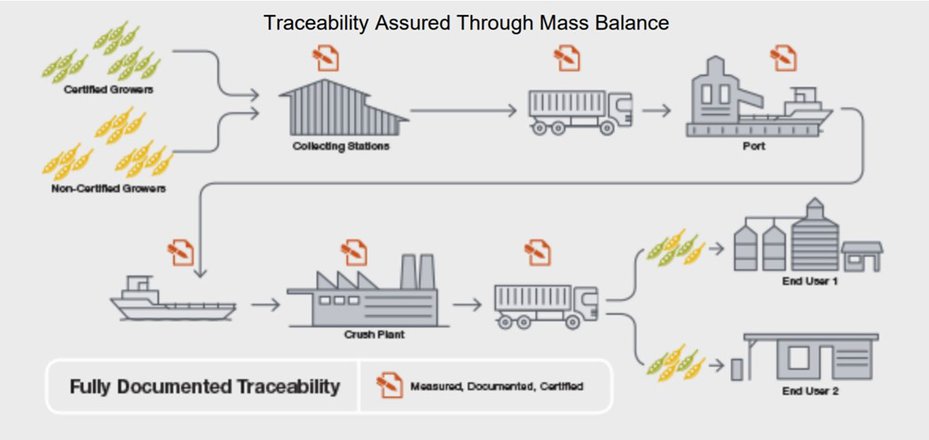
THE SCHEMATIC OF CARGILL’S ‘MASS BALANCE MODEL’ FOR THE COMPANY’S ‘TRIPLE S' CERTIFICATION SCHEME, CLEARLY ILLUSTRATES HOW SOY FROM UNCERTIFIED FARMS IS MIXED INTO CERTIFIED CONSIGNMENTS. CARGILL
On balance, the
volume of mixed product sold as certified must not exceed the volume of soy
purchased from certified farms; if a trader buys 10% from certified farms and
90% from non-certified or non-compliant farms, 10% of its overall sales can be
sold as certified.
Yet, by design, this nominally certified soy can, does and almost always will
incorporate soy from any uncertified farms that a trader sources from,
including any operated in violation of the rights of Indigenous and campesino
communities, such as those in Paraguay we visited, or from farms involved in
deforestation, for example.
Other than ADM, none of the companies named in this report
refuted this assessment when put to them. ADM suggested that ‘ADM does not mix soy, but is aware that any “bulk”
commodity handled at large scale will naturally comingle’.
Nonetheless, notwithstanding ADM’s
semantic games, ADM’s own proprietary Responsible Soybean Standard
(specified by 2 Sisters) explicitly says that under its mass balance offer:
It is allowed to mix a verified crop with the same species of an unverified crop
Archer Daniels Midland, ‘Responsible Soybean Standard’, Version 2
While ‘mass balance’ schemes require at least some soy in
every certified consignment to come from certified farms, under ‘area mass
balance’ schemes this is not the case, and individual consignments need not
contain any soy from certified farms, provided volumes sold as certified do not
exceed volumes sourced from certified farms.
Cefetra’s CRS scheme, which only offers ‘area mass balance’
chain of custody, admits its system “can result in a very low amount or even no
actual certified commodities in a shipment."
Increasing demand for mass balance certified soy can
increase demand for certified soy, and in theory incentivises more farmers to
enter sustainability certification. This is good, or at least as good as the
audits involved.
However, mass balance certification does not in any way
ensure the exclusion of soy from high risk or non-compliant farming operations,
and, in fact, ensures soy from such sources can and likely will continue
entering value chains that use it indefinitely. Risk is structurally locked in.
In this way, for as long as companies operating them
continue buying from sources implicated in grave human rights abuses, as the
traders in this report do, mass balance schemes will not exclude soy from those
sources, and instead function to falsely certify soy that in fact comes from
uncertified sources.
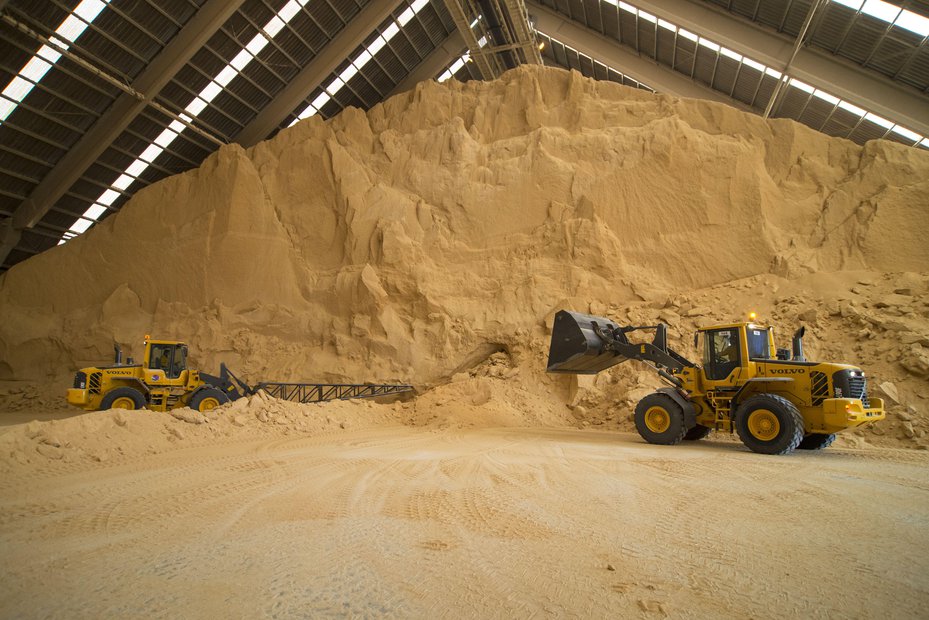
SHOVEL LOADERS HANDLE SOYBEAN MEAL AT A BULK STORAGE FACILITY IN SAN LORENZO, ARGENTINA. MOST PARAGUAYAN SOYBEAN MEAL IS AGGREGATED AT SUCH FACILITIES, PRIOR TO SHIPMENT TO EUROPE. WIRESTOCK/ ALAMY
The
segregation of certified and uncertified soy is the most credible way to ensure
the exclusion of soy from undesirable sources, but Europe’s meat and retail industry, swayed by resistance from the soy
traders and feed manufacturers, cost considerations and an indefinite lack of
segregated soy, are apparently not insisting on it, if even specifying it.
Again, pragmatism is trumping principle where human rights
are concerned.
The acceptance of mass balance certification by the most
progressive voices in the industry as a whole, including UK supermarkets, locks
in the UK as a destination market for any farmer from whom ADM, Cargill,
Cefetra, and its supplier Bunge, buy soy.
This includes soy from farmers directly causing the most
egregious and criminal human rights and environmental harms against vulnerable
communities like the Ava Guarani of Ka'a Poty, the Mbya Guarani of Hugua Po’i, or the campesinos fighting for their rights and lives in Yeruti and Yvype.
No UK Soy Manifesto signatory that is selling 2 Sisters chicken embedding mass balance-certified Paraguayan soy knows whether they are or will continue using soy sourced from any of the farms visited by Global Witness. This will still be the case even after the Manifesto’s 2025 end goal.
Neither 2 Sisters, nor any of the 10 UK retailers or 3 fast-food
brands selling its chicken products, disputed this assessment when put to them
by Global Witness. All but one are UK Soy Manifesto signatories.
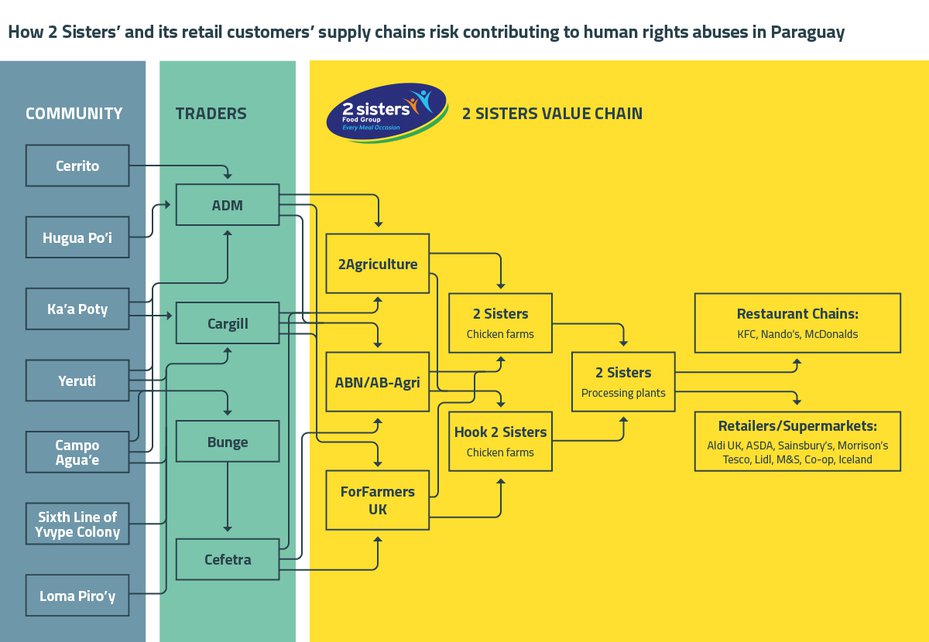
Consequently, virtually every UK consumer of chicken risks buying products contaminated with soy produced on farms operated by farmers causing human rights harms in Paraguay, or elsewhere.
2 Sisters told us it was ‘concerned’ about the links to
rights abuses in Paraguay we had identified and had asked its suppliers to
respond. It said the mass balance schemes it specifies are “recognised as a
means to make improved standards of production more readily achievable for
farmers’ and are benchmarked against the European Feed Manufacturers
Association (FEFAC) Soy Sourcing Guidelines”.
This is true, because those industry recognitions and
FEFAC’s guidelines allow tainted soy to be laundered into certified
consignments via mass balance schemes. Indeed, FEFAC has proactively lobbied the EU to ensure proposed regulation on
deforestation allows untraceable, non-segregated, and non-certified soy from
farms like those we visited in Paraguay to be shipped to Europe mixed into mass
balance certified consignments (See ‘Lobbying for lax legislation’, below).
Nando’s did not refute any of the allegations we put to it,
but a spokesperson said “a sustainable and ethical supply chain is integral to
our business. We work closely with our suppliers who, like us, take
their responsibilities for soy sourcing seriously. We have robust
protocols in place to make sure the production of soy remains in line with the
required standards. We’ve also signed the UK Soy Manifesto and continue to work
hard to implement this."
A KFC Spokesperson said: “We
have very clear requirements of our suppliers regarding ethical
sourcing, and the wellbeing of our people –
and all those across our supply chain – is
always a top priority. We’re a key signatory of the UK Soy Manifesto and are
committed to ensuring that the soy in our supply chain is sourced responsibly,
so we take these accusations very seriously. We appreciate Global Witness for
bringing this to our attention and we will continue to stay close to the
situation.”
McDonald’s did not respond to our
findings.
Of course, the problem is not just with the UK and 2 Sisters and chicken. The same schemes are at play in Danish Crown’s pork value chain and the sales of its products by retailers across Europe.
European retailers have formed sustainability initiatives
similar to those in the UK.
The French Soy Manifesto, signed in late 2020 by leading
retailers in that nation (including those selling Danish Crown products named
above), also commits signatories to ‘mobilise their own-brand suppliers from
January 2021, to include a contractual non-conversion/deforestation clause … in
the specifications’ reflecting a January 2020 deforestation cut-off date.
However, this manifesto focusses primarily on the retailers’ own-brand products, and a commitment to ‘Support the implementation of these
commitments by national brands’ would not obviously apply to Danish Crown.
In Germany, many of the retailers stocking Danish Crown products signed a
Declaration in 2020 calling out soy trader’s purchases of grains linked to
deforestation. However, the declaration relates only to Brazil.
DUH (Deutsche Umwelthilfe /Environmental
Action Germany), a leading NGO, assessed supermarket policies on soy in a July 2021 report covering all the chains we mention above. It found ‘none of the companies examined can be
rated well’, and that the supermarkets ‘score particularly poorly in the
criteria of traceability, standard quality, and transparency.'
Much work
clearly still needs to be done.
While Danish Crown
has not publicly detailed specific certifications or standards required to meet
its UK Soy Manifesto commitments or its ‘soy action plan’ (developed in 2020 in
cooperation with the Danish Alliance for Responsible Soy), the same
principal soy traders, ADM and Cargill, dominate Danish imports of Paraguayan
soy.
The
same risks of mass balance certification schemes contaminating Danish pig
production with soy from the Paraguayan farms violating human rights exists in
Danish Crown’s business as it does for 2 Sisters’. The only major risk
difference is the lower overall volume and proportions of imports of Paraguayan
soy into Denmark than in the UK.
The two dominant animal feed firms used by Danish pig
farmers supplying virtually all pigs processed by Danish Crown, namely DLG and
Danish Agro, both accept leaky mass balance certification schemes that mix
certified and uncertified soy, and appear set to do so even after 2025.
Neither of Danish Crown’s two principal animal feed
suppliers disputed that they regard mass balance certified soy to constitute
‘physically certified’ and ‘verified responsibly sourced’ soy – the publicly
stated (albeit vaguely defined) end-goal of their supposedly ‘ambitious’ soy
action plans to 2025.
This is despite all the evidence that unverified uncertified and high-risk soy
is systematically mixed in.
As with 2 Sisters, neither Danish Crown or Danish Agro, nor
any of the 26 major UK, French, German and Italian retailers, or the consumer
goods firms we identified to sell or use Danish Crown pork refuted our
assessment that they do not know whether they use or will continue using soy
from the farms we visited in Paraguay from which ADM sources. Only DLG denied
receiving any Paraguayan soy from ADM in recent years.
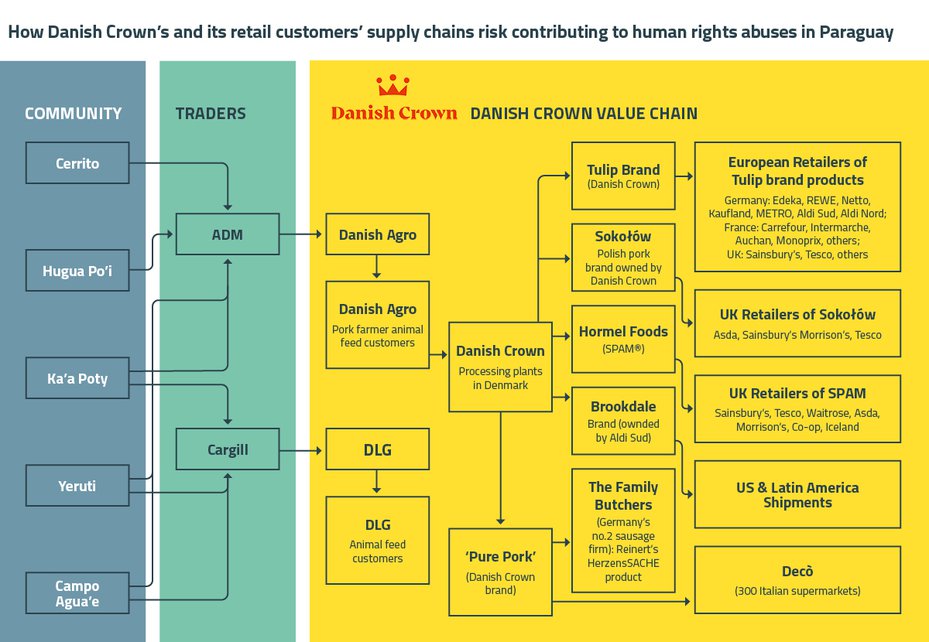
There is no suggestion that the various supermarket and
restaurant chains named above were aware of the human rights harms in the
supply chains detailed in this report.
Yet their lack of awareness is in itself part of the
problem. It is reasonable to conclude that, even under coordinated
well-publicised industry sustainability initiatives such as the UK Soy
Manifesto:
virtually the entirety of the European meat and retail sectors have decided to retain risk of human rights harms in their supply chains, many apparently indefinitely, in what constitutes coordinated pre-meditated negligence dressed up as responsibility.
Responding to our findings, Danish Crown told us it would
commission a third-party review of its supply chain, review its current soy
policy, and ‘strengthen our focus upon deforestation,
human rights, and land use, depending on the 3rd party review’. The company also pledged to ‘ask Danish feed companies to be transparent and give
Danish Crown access so we can follow specific shipments of soy’.
Danish Crown also explained that, because
it ‘recognises the
challenges of establishing sustainable and transparent soy value chains’, the firm
will purchase RTRS credits ‘until sustainable physically segregated soy is available’.
It said it would do this ‘to emphasize that we want sustainable and transparent
soy production and to make it clear that sustainable value chains do not yet
exist on a large scale’. The company did not state, however, whether it did
currently specify segregated certified soy.
The statements appeared to suggest Danish Crown
planned to offset its unsustainable soy footprint with RTRS credits, and do so
to show that it was not able to ensure its soy was sustainable.
Nonetheless,
in a statement issued to its customers responding to our research, the company
was more explicit, stating that ‘by 2025 we want physically segregated
soy for all slaughter animals from our cooperative owners’.
Whether these UK and EU companies now act to remove these
structural human rights risks from their supply chains will be the real test of
whether they truly intend to meet the responsibilities under international
human rights standards they all profess to uphold, or if commercial
considerations will continue compromising compliance.
The regulatory deficit
Where voluntary corporate responsibility repeatedly fails,
regulation is required.
In recent years, the European Commission has been developing
two flagship pieces of legislation mandating supply chain due diligence
measures for European companies. These include a proposed regulation focussed
on eliminating deforestation and degradation,
and a proposed directive to eliminate human rights and environmental harms
from EU value chains.
Both initiatives recognise agriculture as a high-risk
sector, apply to soy and derived products, and could and should safeguard human
rights, Indigenous and local community land rights, and the principle of free
and prior informed consent (FPIC). Nonetheless, whether they will sufficiently
do so remains uncertain.
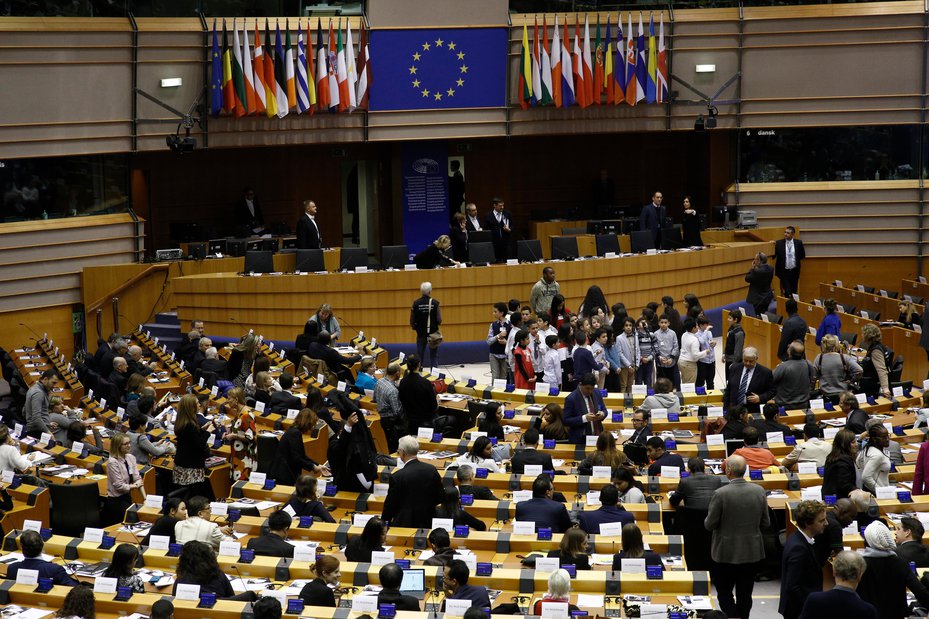
PLENARY ROOM OF THE EUROPEAN PARLIAMENT DURING THE 70TH ANNIVERSARY OF THE UNIVERSAL DECLARATION OF HUMAN RIGHTS CONFERENCE. CREDIT: ALEXANDROS MICHAILIDIS/ALAMY LIVE NEWS
The European Parliament is working – in the face of industry
lobbying (see Lobbying for Lax Legislation’, below) – to ensure the
European
Commission’s proposed regulation on deforestation is strengthened to
incorporate requirements on internationally recognised human rights,
including Indigenous peoples and other customary rights-holders. Yet such basic
requirements would only apply to soy where deforestation has
recently occurred, rendering the law irrelevant for the serious human
rights
cases in this report.
This leaves the proposed directive on human rights and the
environment to fill the gap in European law.
In
February 2022, the European Commission released a draft law to promote
corporate accountability by requiring companies to assess their impacts on
people and the planet. The Corporate Sustainability Due Diligence Directive
(CSDDD) could
require companies operating in the EU to conduct due diligence to identify,
prevent, mitigate and remedy human rights and environmental risks associated
with their activities.
While civil society organizations, including Global Witness, have
welcomed this proposal, it
remains to be seen whether it
will provide sufficient accountability for egregious human rights abuses in EU soy
value chains.
The proposal does require large companies to undertake due
diligence on their supply chains, including those abroad. However, multiple
loopholes in the text would likely allow big soy traders like ADM and Cargill,
and EU companies using soy they buy, to devolve this responsibility onto
smaller suppliers or avoid it entirely.
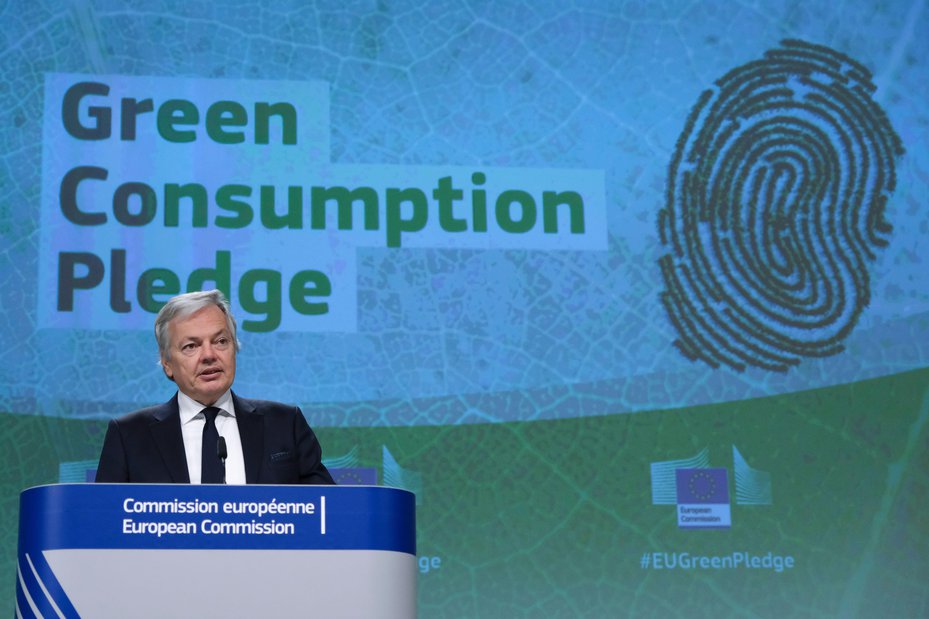
EUROPEAN COMMISSIONER FOR JUSTICE, DIDIER REYNDERS, WHOSE DIRECTORATE GENERAL FOR JUSTICE IS RESPONSIBLE FOR THE PROPOSED EU CORPORATE SUSTAINABILITY DUE DILIGENCE DIRECTIVE. © ALEXANDROS MICHAILIDIS/ALAMY STOCK PHOTO
The current draft directive would require companies to
assess only the activities of suppliers with whom they have lasting business
relationships, ignoring the structure of many value chains that rely on
short-term business structures and multiple smaller suppliers. Consequently,
the big soy traders may not even be obliged to do due diligence on suppliers
such as those in this report.
Further, the EC’s draft allows companies to rely on shaky mechanisms to meet the due diligence obligations it defines.
The proposal allows companies to rely on contracts to fulfil
their obligations – which could
allow them to simply shift the responsibility for carrying out due diligence as
well as upholding human rights and environmental standards onto suppliers and
other actors in the value chain.
The Commission’s proposal also allows companies to rely on unreliable mechanisms such as third-party verification and industry initiatives to help fulfil their due diligence obligations and demonstrate compliance.
Such mechanisms have been used by corporates exposed in this
report even when abusive practices persist.
Mass balance certifications benchmarked by FEFAC’s
Responsible Sourcing Guidelines and used in industry initiatives like
the UK Soy Manifesto or equivalent initiatives in Denmark, France, and
other European
countries adopted by
corporates in this report, may be deemed acceptable and absolve
companies of their responsibilities – even when abuses continue in their
supply chains.
Finally, the published draft does not recognise
stakeholders, including Indigenous communities or land and environmental
defenders, as vital actors with whom companies need to engage continuously. The
draft merely states that they should be consulted only ''where relevant''.
It is essential that the legislation recognises
Indigenous rights, including land rights established in international law
(e.g., the right to exercise free, prior, and informed consent) and mandates
meaningful engagement with impacted and potentially impacted communities as
part of a company’s ongoing due diligence processes.
Unless the proposed human rights due diligence directive is
significantly strengthened, both of the EU’s landmark due diligence legislative
initiatives - on deforestation, and human rights and the environment – will
fail to bring credible corporate accountability to the soy traders, animal feed
companies, mega farm operators and meat processors covered in this report, or
the big-brand retailers that underpin the multibillion-dollar industrial meat
sector across Europe.
The UK also needs to play its role in closing its market to human rights abuse, as our investigation reveals.
There is growing momentum behind calls from both civil society and major investors for the adoption of mandatory corporate human rights due diligence legislation
in the UK that is aligned with UN and OECD standards, and polling suggests four in five UK citizens support such legislation.
The Environment Act 2021, passed in November 2021, also
embodies scope to prohibit UK companies from importing or using soy linked to
human rights abuses or illegal land use. Schedule 17 of the Act prohibits UK
regulated persons from using illegally produced commodities where ‘relevant
local laws’ are not complied with and defines ‘relevant local laws’ as those
relating to the ownership and use of the land on which the commodity was
produced. Many of the cases of illegal land ownership, illegal pesticide use, and
violent forced evictions of the kind detailed in our investigation should be
within scope. However, Schedule 17 will not be enforceable until ‘regulations
made by the Secretary of State’ have been passed. The timetable for such
regulations remains uncertain.
Lobbying for lax legislation
Multiple companies central to the soy supply for both 2 Sisters and Danish Crown have influential roles in trade bodies that have lobbied to weaken European Union due diligence requirements on soy in ways that would perpetuate human rights risk in Europe’s soy supply.
In March 2022,
Unearthed, Greenpeace UK’s journalism project, revealed how, in October and
November 2021, including during the Glasgow climate summit, Fediol - the EU
Vegetable oil and protein meal industry association, and Coceral - the European
cereals and oilseeds traders association, joined the EU animal feed
manufacturers federation, FEFAC, in lobbying the European Commission Executive
Vice President for the European Green Deal,
Frans Timmermans, and senior officials in the European Commission’s
Environment ministry.
The trade federations argued that ensuring
traceability to geolocated farms – essential to identify deforestation and
human rights risk – presented privacy and commercial confidentiality problems
for companies involved. They also argued that segregating deforestation-free
commodities from those linked to deforestation – equally important in
eliminating deforestation from supply chains – would push up prices and reduce
sources of supply. The groups urged the EU to remove both requirements from a
proposed EU regulation on deforestation.
The policies advocated by the trade groups would ensure companies could continue trading soy produced through deforestation and/or human rights abuses into the EU single market despite the regulation nominally prohibiting it.
They would
hold open the door for the ‘mass balance’ certification schemes used by ADM,
Cargill, Bunge, and Cefetra, and accepted by European meat firms and retailers.
ADM, Cargill, Bunge, Cefetra, DLG and Danish Agro all hold
influential management positions in these European trade bodies, or in national
bodies with significant influence over them.
Fediol’s President is a
Bunge executive, while its Vice-President is currently a Cargill executive,
having previously been an ADM executive. Coceral’s Vice-President is a Cefetra executive and the company sits on its
corporate board, along with Bunge, Cargill, and ADM. The current President of the board of FEFAC is an ex-CEO of DLG who now holds
the position of the Director of the Secretariat of Dansk
Korn & Foder (DAKOFO), the Danish grain and feed industry association. DAKOFO’s
board includes 5 current DLG executives and 2 Danish Agro executives, with a
DLG executive acting as DAKOFO Chairman and a Danish Agro executive as Deputy
Chairman. DAKOFO is
also represented on the board of Coceral.
Bunge told Global Witness that it ‘strongly refutes’ any suggestion
its role has been to weaken the upcoming EU deforestation rules.
When the
European Parliament overwhelmingly voted, in a 13 September 2022 plenary vote,
to strengthen an EC proposal on the deforestation regulation to include
traceability back
to where the products were harvested or produced, all
three trade bodies issued a statement expressing their ’regret’ at the measure.
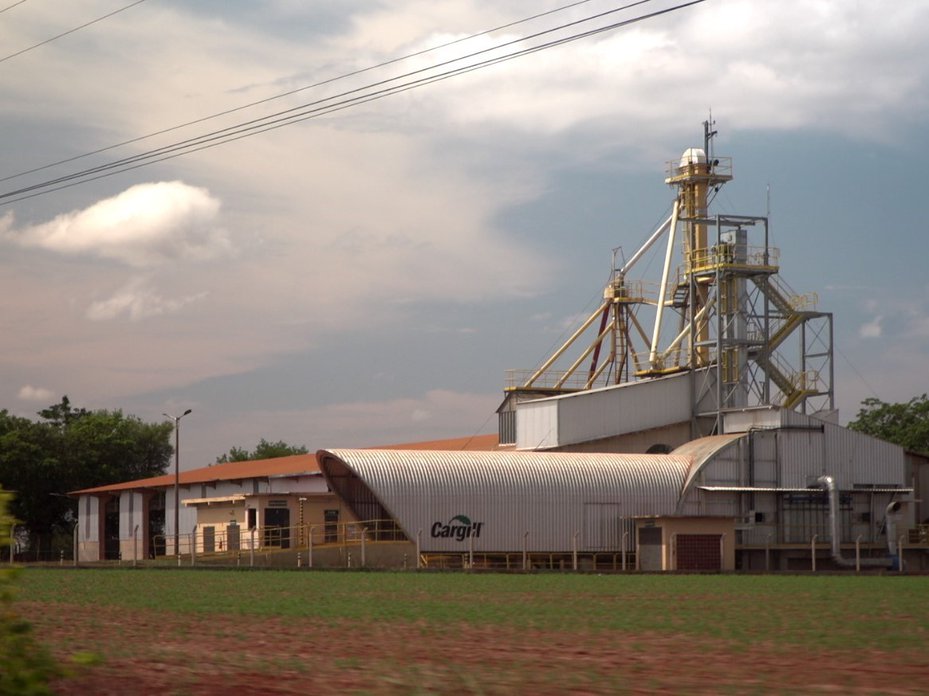
A CARGILL SOY SILO IN EASTERN PARAGUAY. GLOBAL WITNESS
The EU should:
Ensure that
the Corporate Sustainable Due Diligence Directive (CSDDD) becomes an effective
mechanism for holding corporates accountable and is not undermined by reliance
on ineffective third-party verification systems, certification schemes and
contractual assurances, or by the absence of meaningful stakeholder engagement.
The CSDDD should:
- Replace references to “established
business relationships” with “business relationships” as defined in the United Nations Office of the High Commissioner for Human Rights (OHCHR) Corporate
Responsibility to Respect Interpretive Guide
- Remove references to third-party
verification and emphasize that the due diligence duty and liability for
non-compliance with the Directive lie with the company.
- Require that companies engage safely and
meaningfully with all stakeholders, including Indigenous communities and land
and environmental defenders, on an ongoing basis to inform all stages of due
diligence and remediation with the objective of identifying and preventing
risks and adverse impacts on human rights and the environment.
- Make clear that due diligence and
corresponding requirements on stakeholder engagement should support, but in no
way replace or undermine existing FPIC duties and other rights established
under the ILO Convention 169 and UNDRIP, including rights of Indigenous
Peoples not to be removed from their lands or territories; their right to
redress or compensation for land rights violations; and their right to exercise
FPIC.
The
UK government should:
- Introduce
mandatory human rights and environmental due diligence legislation for UK
businesses, including financial institutions, that are aligned with UN and OECD
business and human rights standards.
- Urgently
bring forward secondary regulations of the Secretary of State mandated by
Schedule 17 of the Environment Act 2021, to ensure UK businesses do not import
or use soy produced in ways that do not comply with ‘relevant local law’ on
land ownership and use in countries such as Paraguay.
Companies, including those named
in this report which are trading soy or products derived from it such as animal
feed, livestock, or meat, should:
- Urgently
act on the findings of this report, including ensuring that no further harms
take place (such as illegal and violent evictions, restrictions on access to
land, and illegal fumigations), that affected communities receive adequate
remedy, and contracts are terminated with actors who continue to cause or
contribute to harms or fail to prevent or remedy harms in their supply chains
- Prioritise
investment in human rights and land rights due diligence to bring policies and
practices into line with international human rights and indigenous rights standards.
This includes:
-
Establishing safe, effective, transparent and accessible
grievance mechanisms and conflict mediation
procedures aligned with the UN Guiding Principles on Business and Human Rights (UNGPs) that provide protections for human
rights, land and environmental defenders and whistle-blowers and enable provision of swift remedy.
-
Increasing transparency across business operations,
including publicly reporting actions undertaken under grievance mechanisms and
the results of remediation, providing access to information for affected
communities in accessible languages and forms.
-
Strictly
implement a policy of zero-tolerance on reprisals and attacks on land and
environmental defenders at all levels of business operations, including in
their global operations, supply chains and business relationships. These
policies should include protocols for safeguarding the rights of land and
environmental defenders and state who at the senior level will be responsible
for legal compliance, as well as how it will be implemented and monitored, and
clear red lines for prompt suspension or termination of contracts for
non-compliant suppliers.
The government of Paraguay should:
- Investigate
the cases of illegal land grabbing, illegal and violent forced evictions,
illegal pesticide use, and their impacts on the Indigenous and Campesino
communities detailed in this report, and prosecute individuals found to have
violated relevant laws and the rights of the communities concerned.
- Ratify
and implement the Regional Agreement on Access to Information, Public
Participation and Access to Justice in Environmental Matters in Latin America
(the Escazú Agreement), including specific measures espoused in Article 9 to
recognise, protect and promote human rights and environmental defenders.
- Revoke Law No. 6830/2021,
known as the Zavala-Riera law after the Senators who tabled it, and
refrain from using legal mechanisms, including criminal law, from repressing
those defending their land rights and the environment.
- Establish
a clear mechanism, with financing and coordination across state and other
institutions, in which Indigenous peoples can pursue ancestral land claims, as
called for in a 2010
ruling from the Inter-American Court of Human Rights.
- Implement
the recommendation of the United Nations Special Rapporteur on the right to
food to introduce taxes on the export of grains, including soybeans, to
increase income for social spending.
- Increase funding for state bodies
responsible for implementing agrarian reform, upholding indigenous land rights,
and enforcing environmental regulations, especially soybean fumigation. Ensure
that those who break the regulations, including state actors, are duly
sanctioned.
This report contains some quotations from press articles, documents and sources that have been translated into English from Spanish. These are clearly indicated in the references.